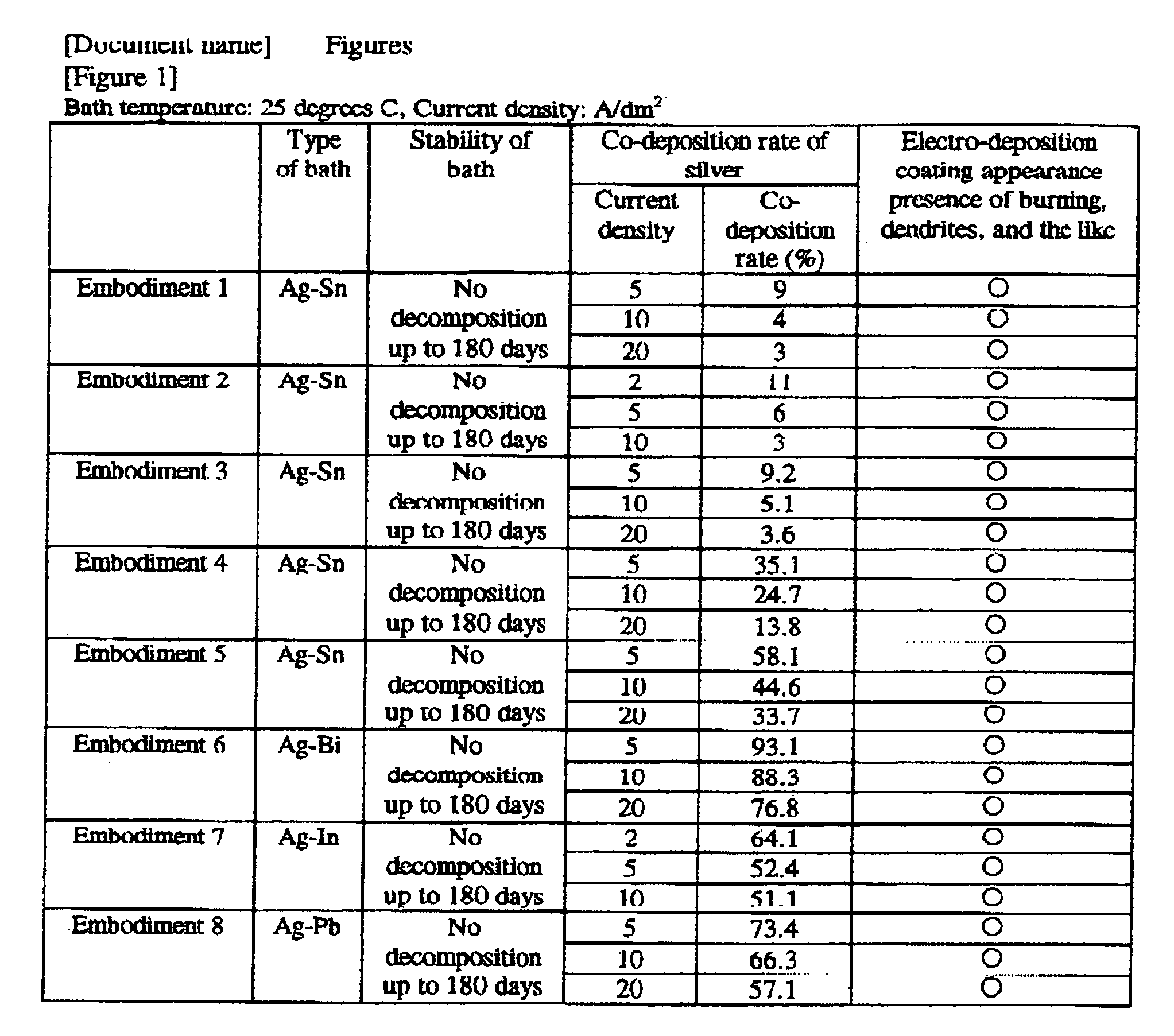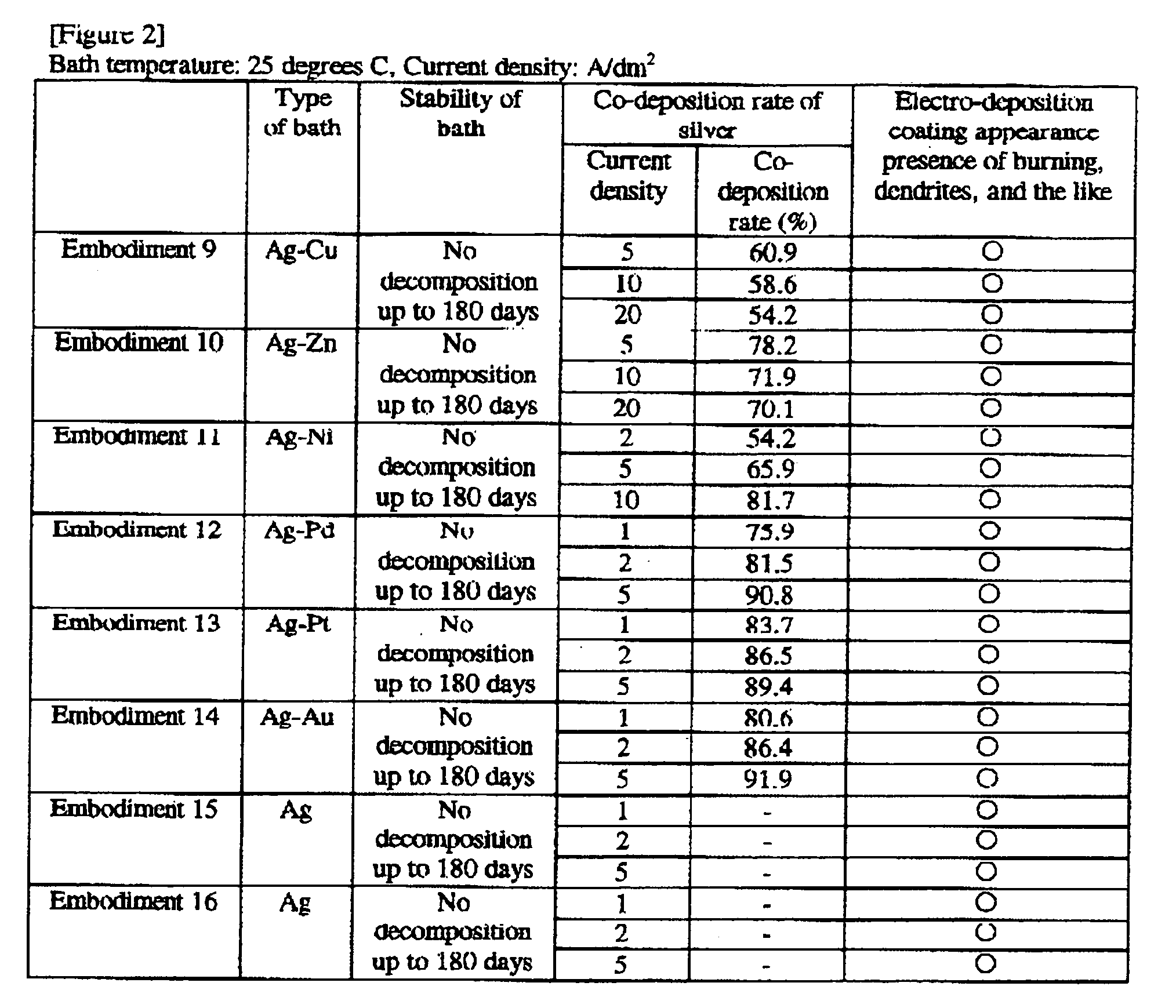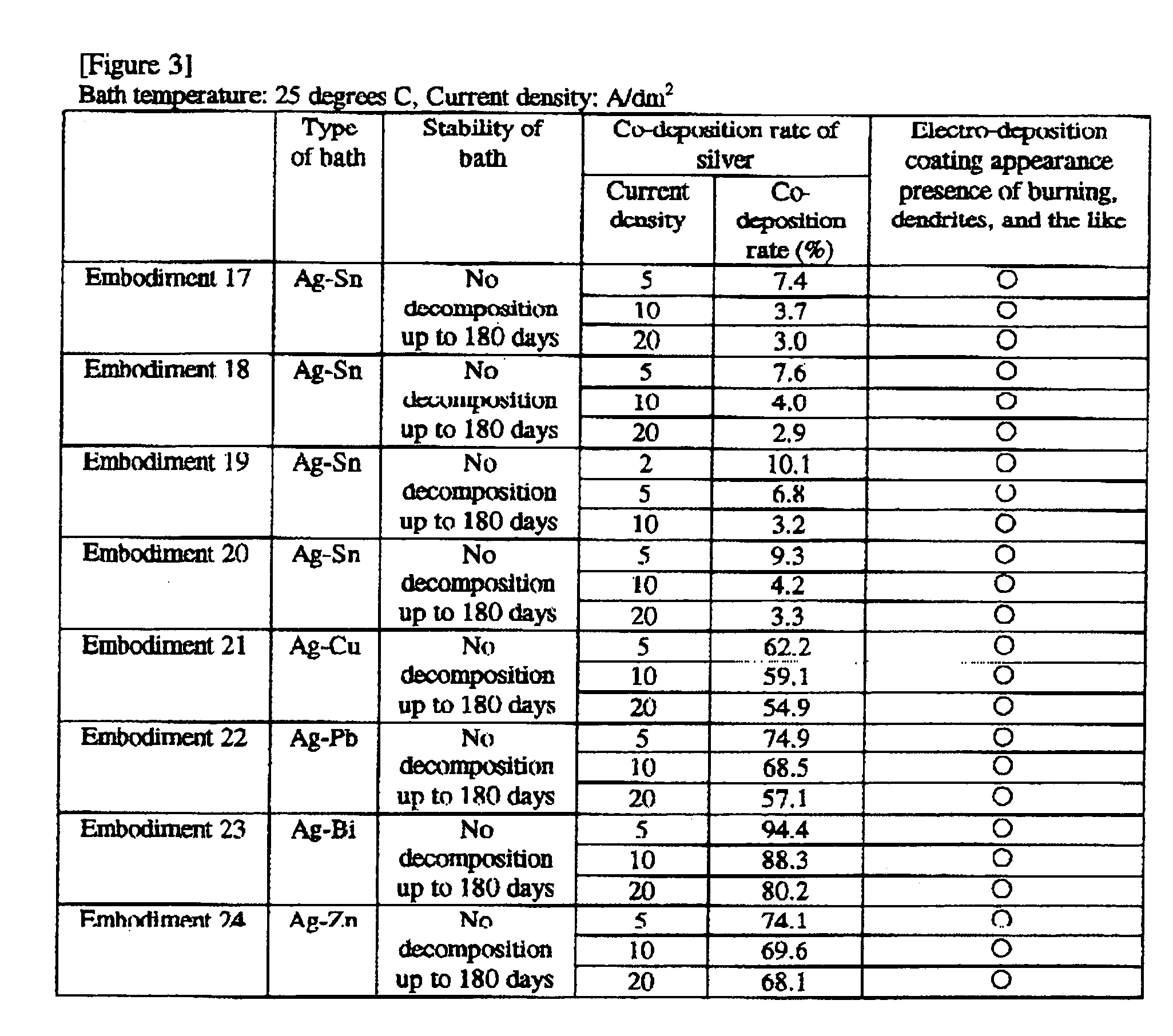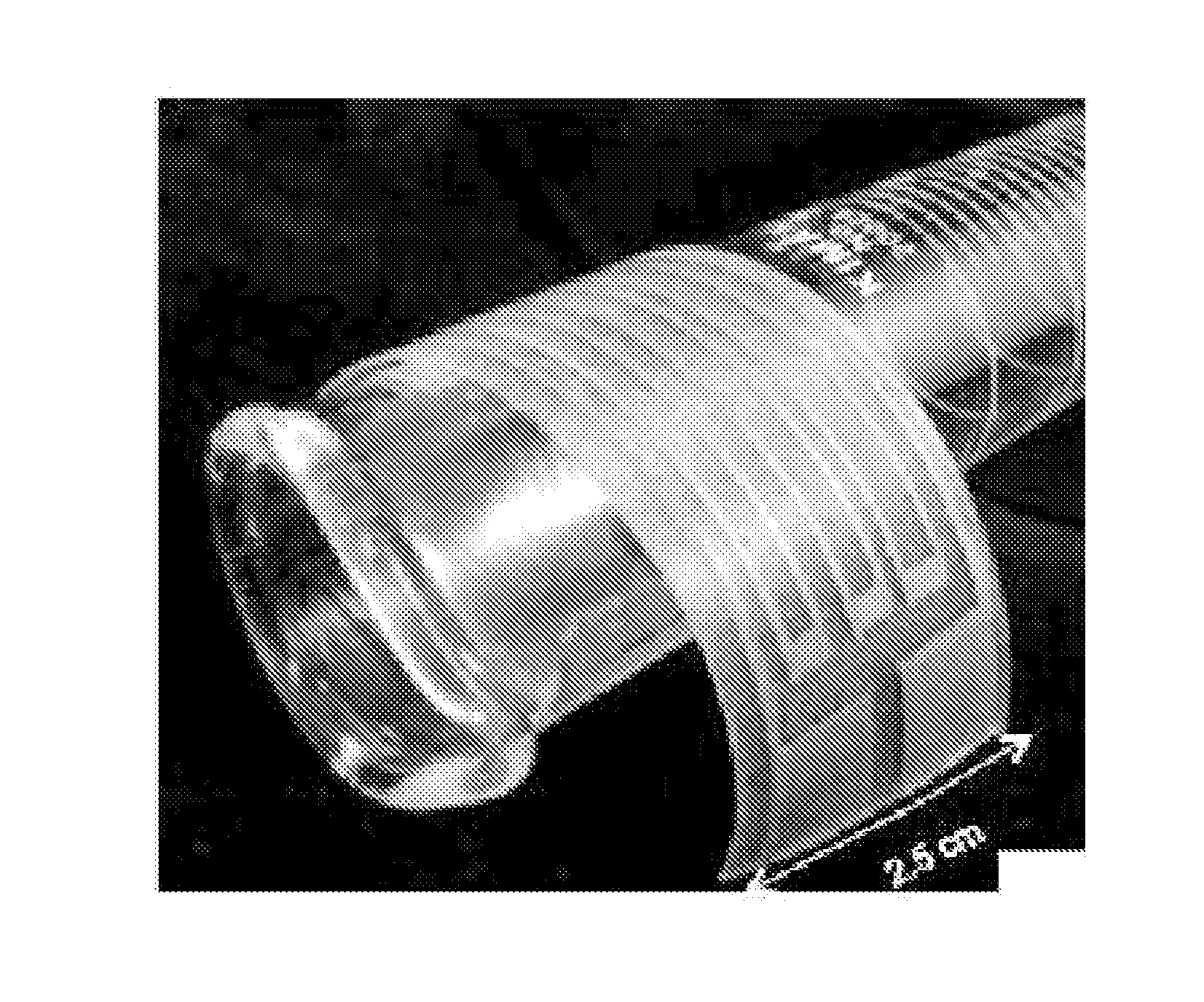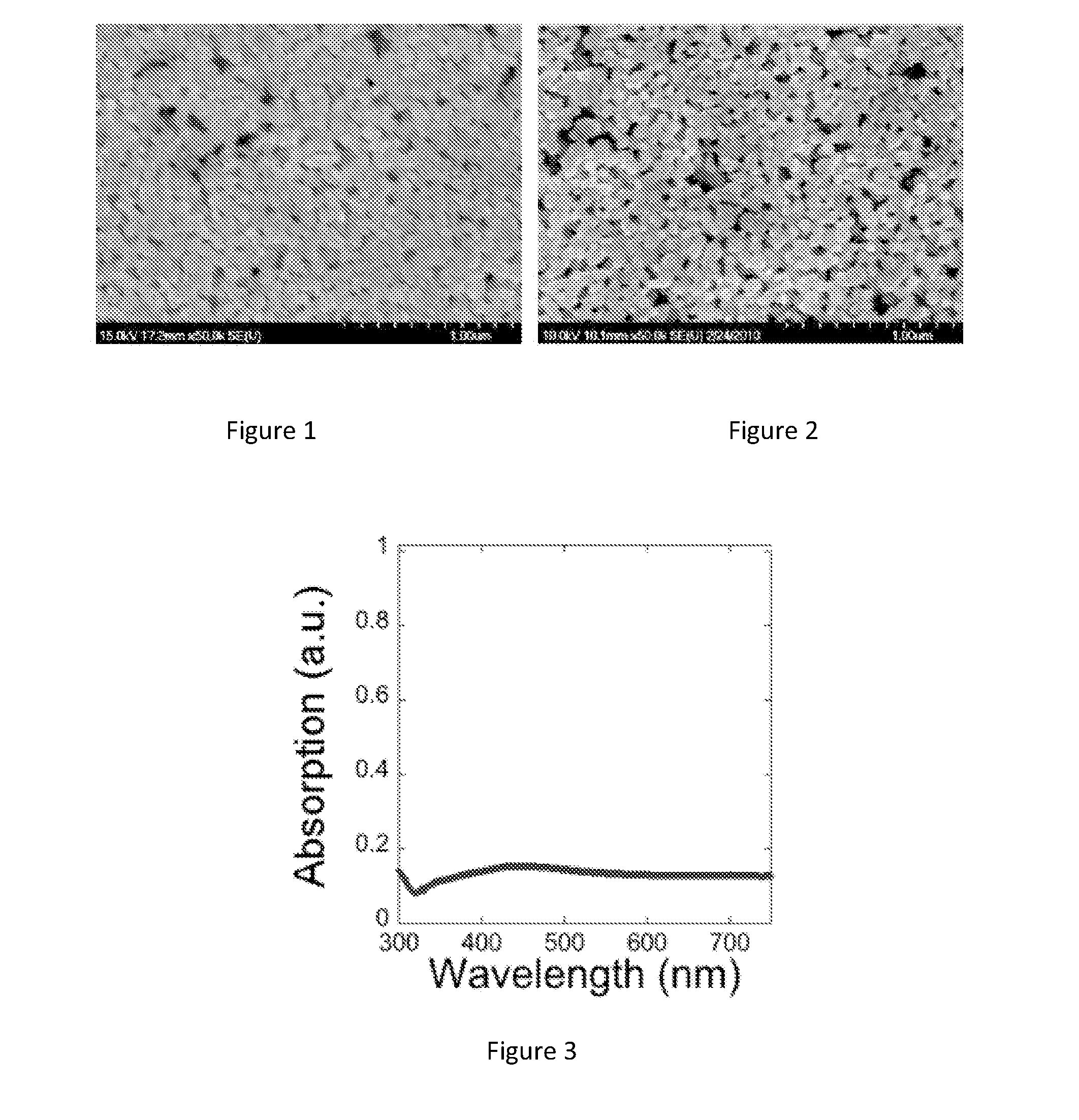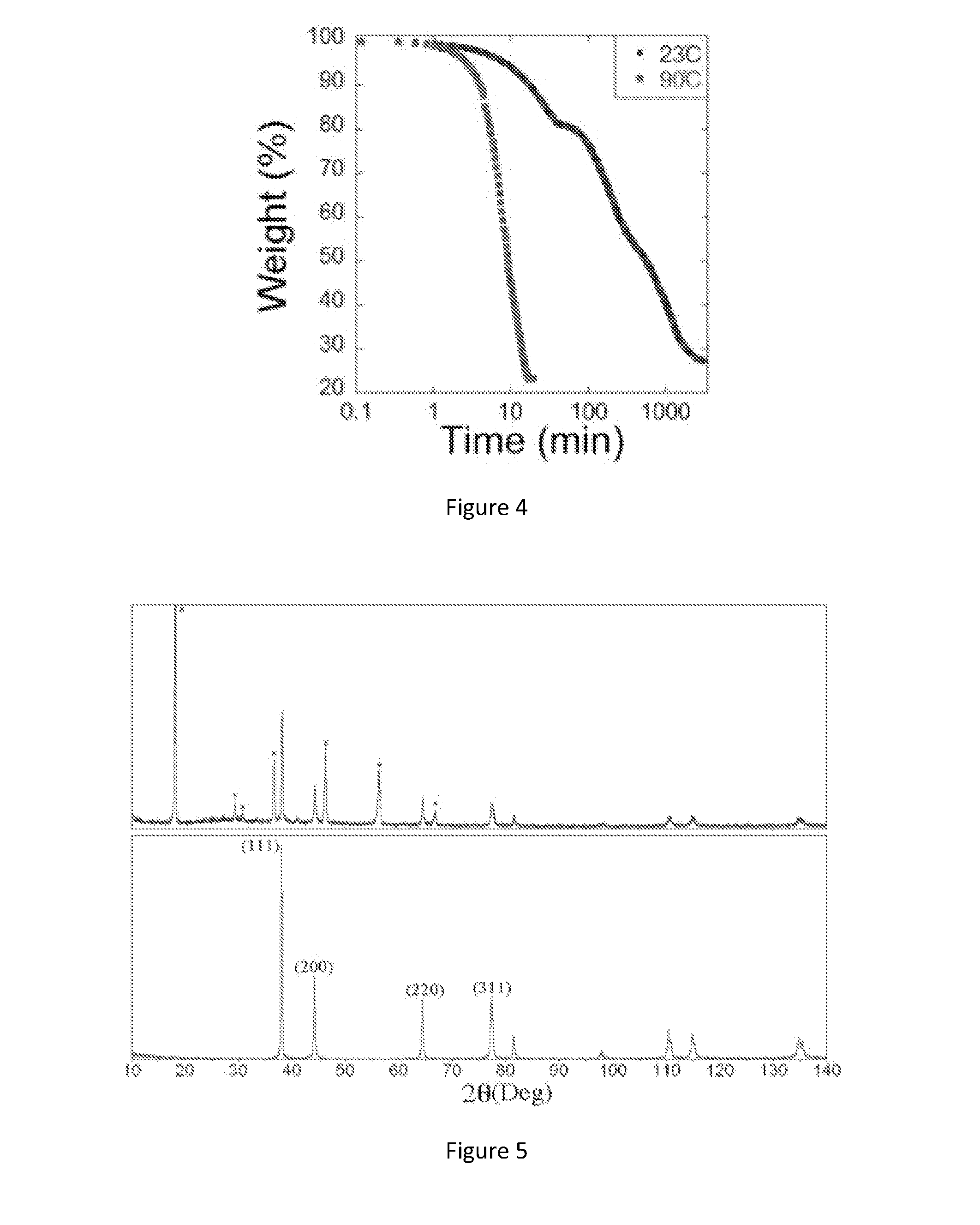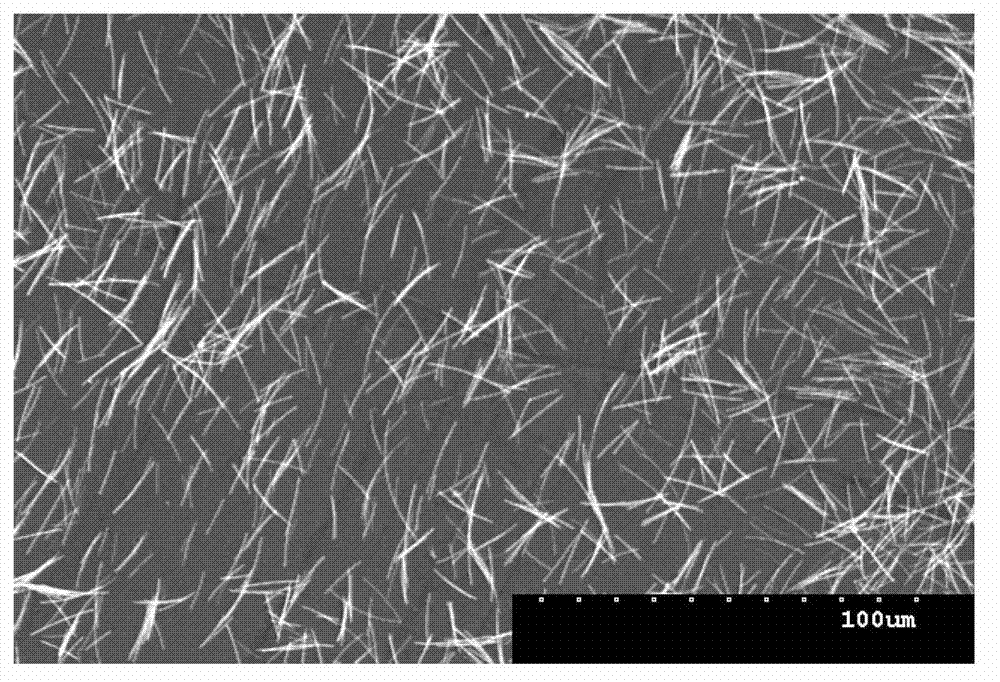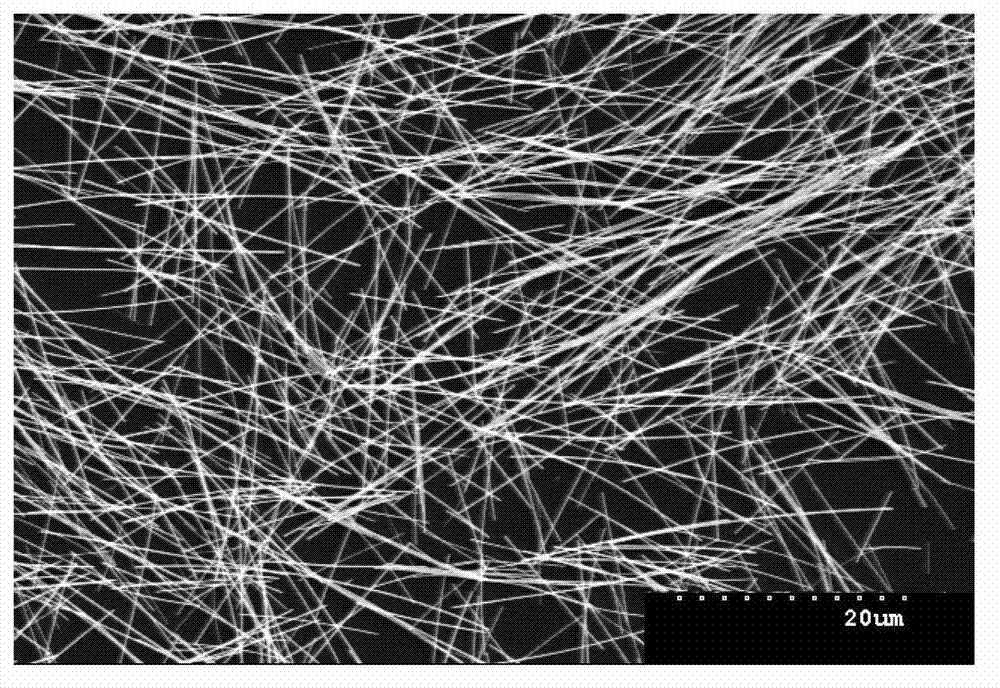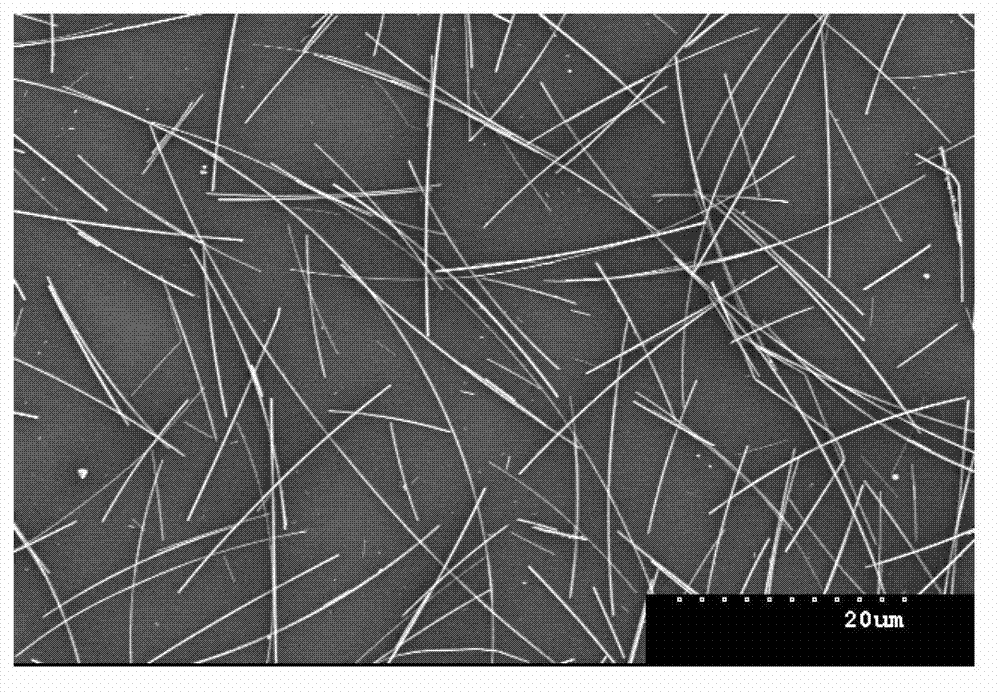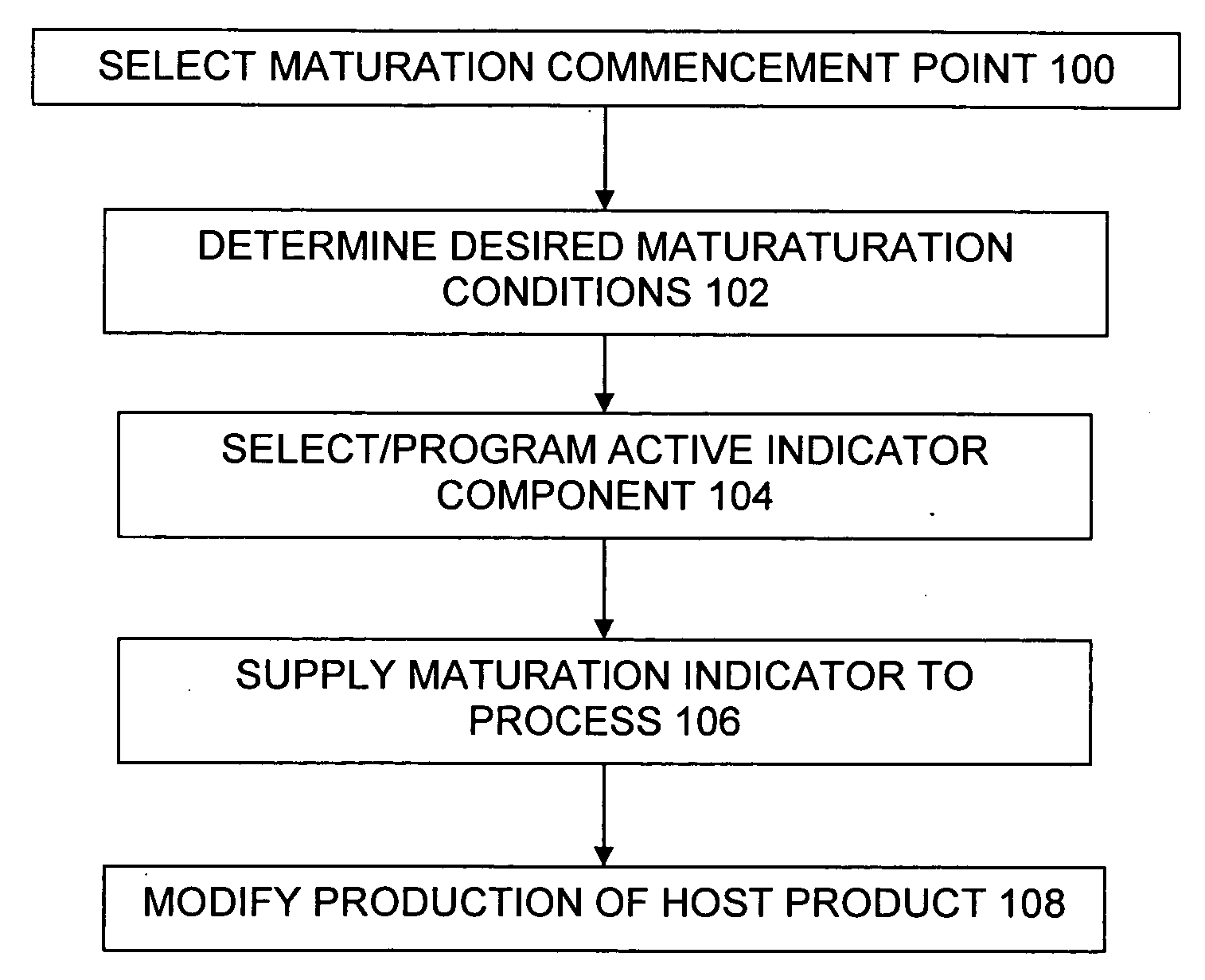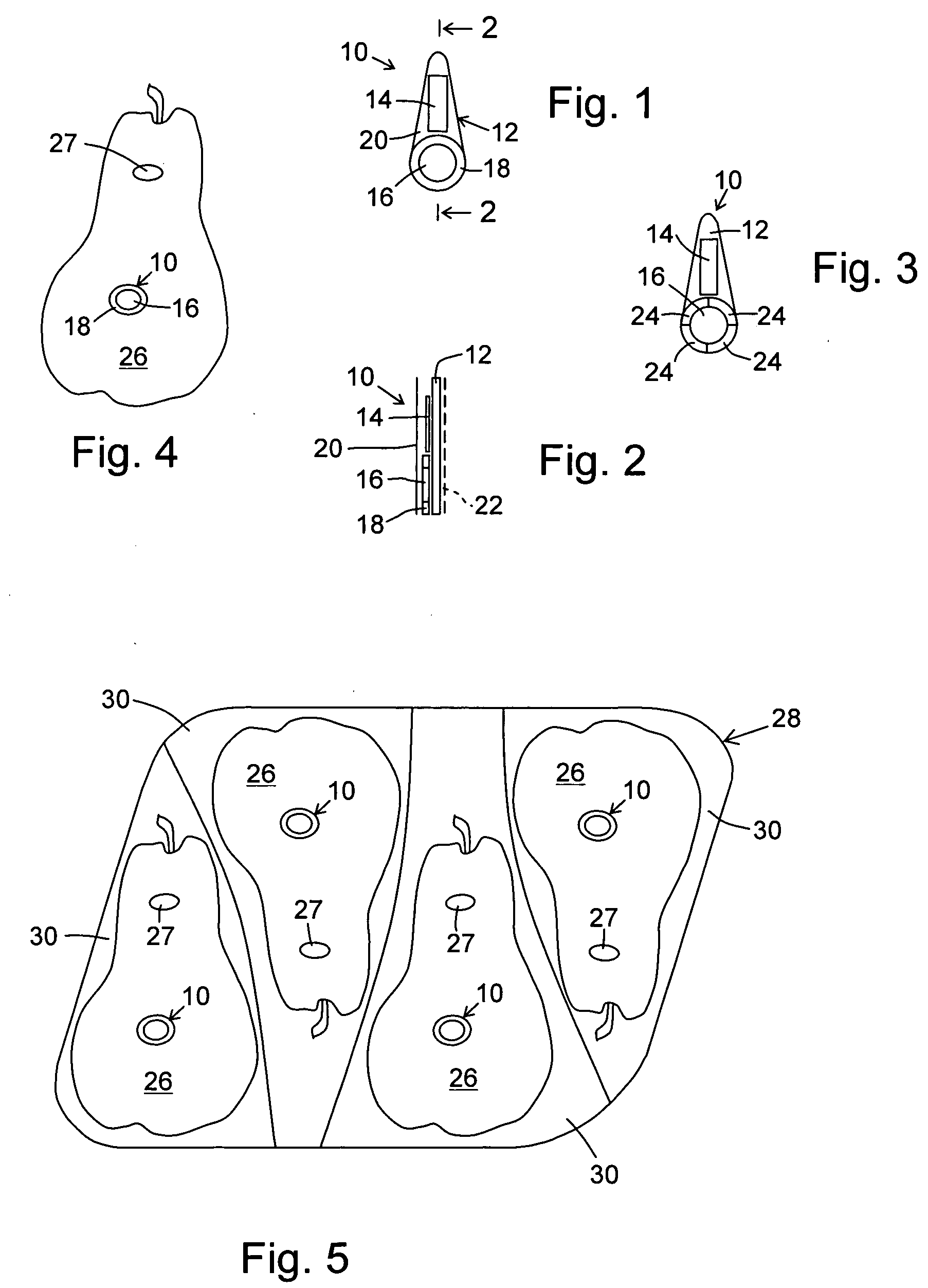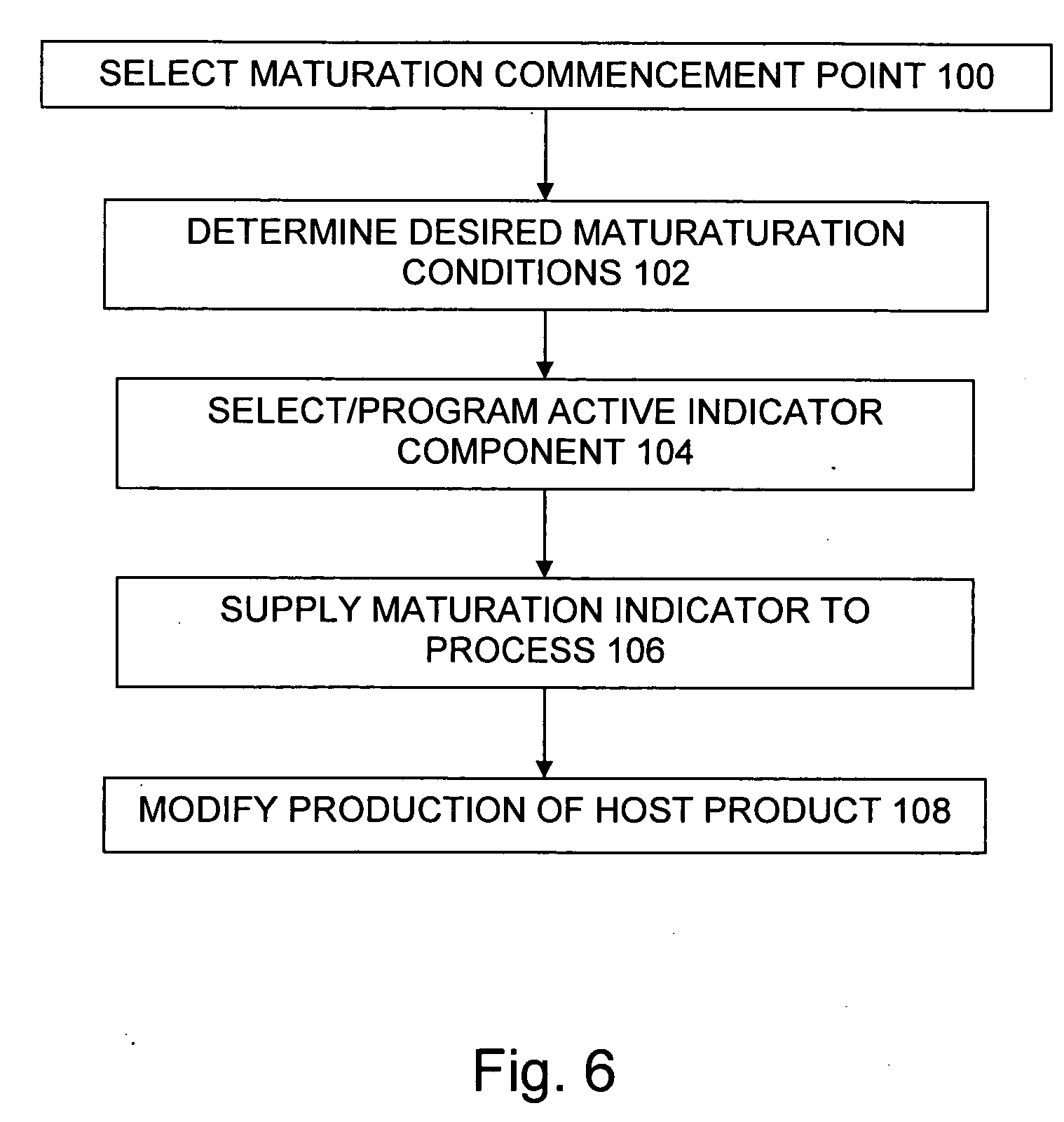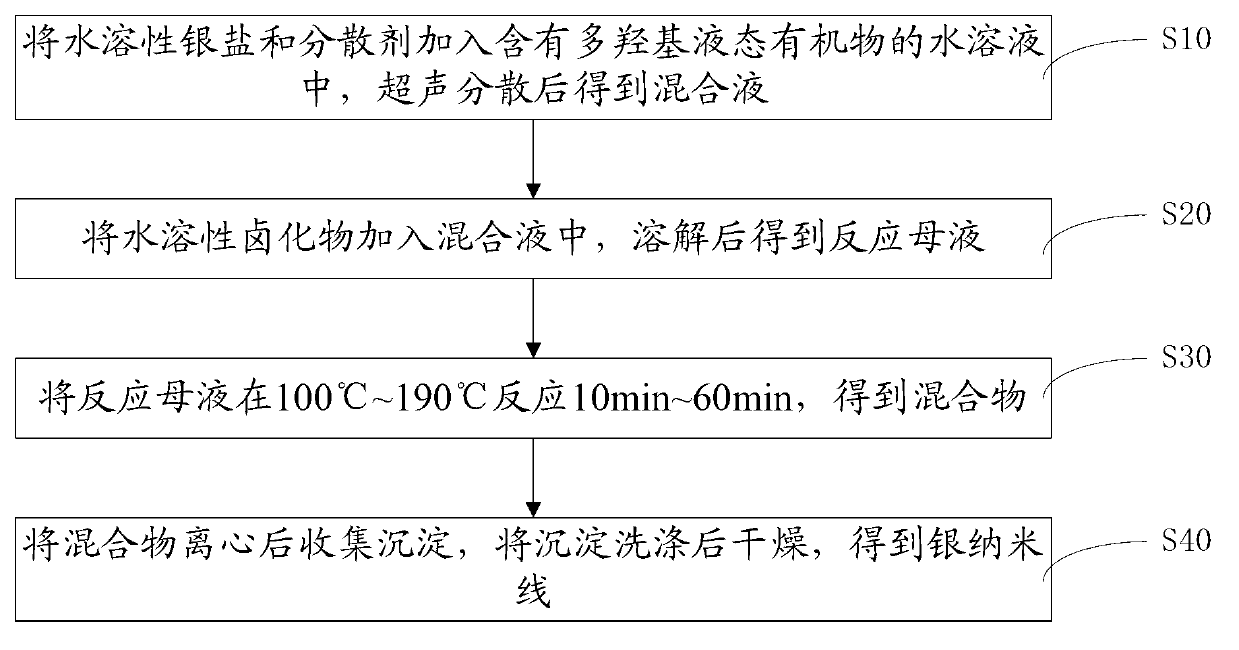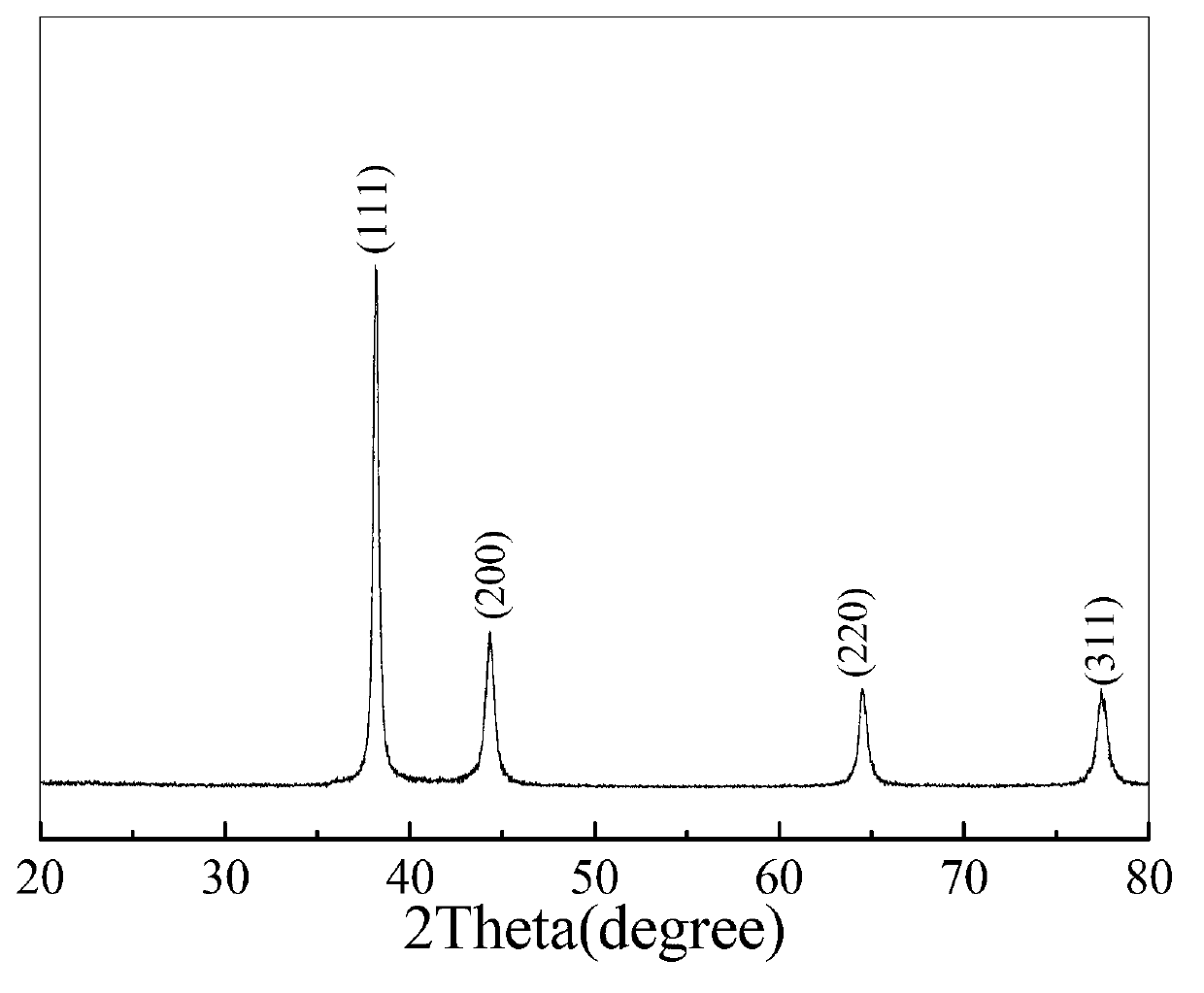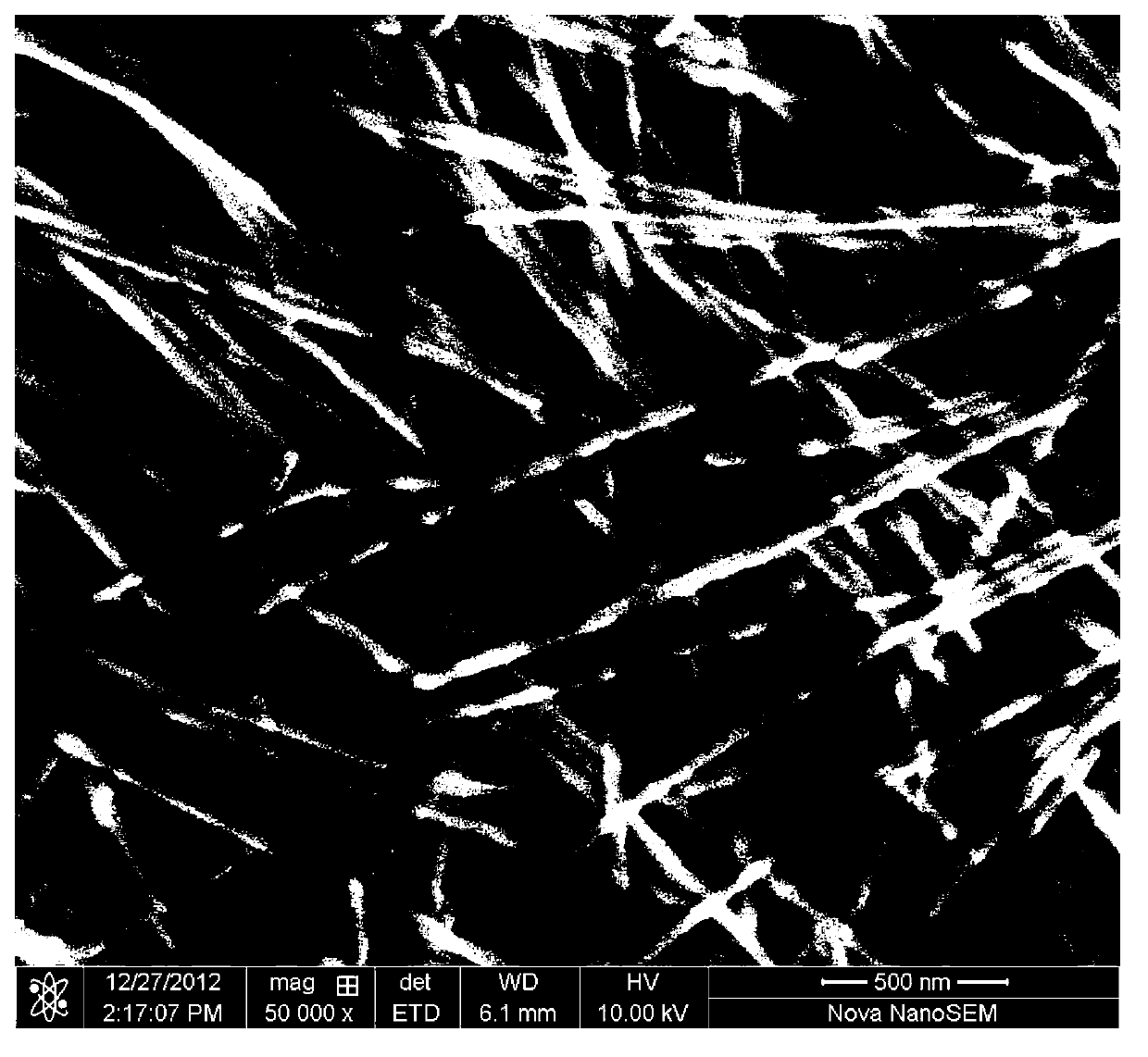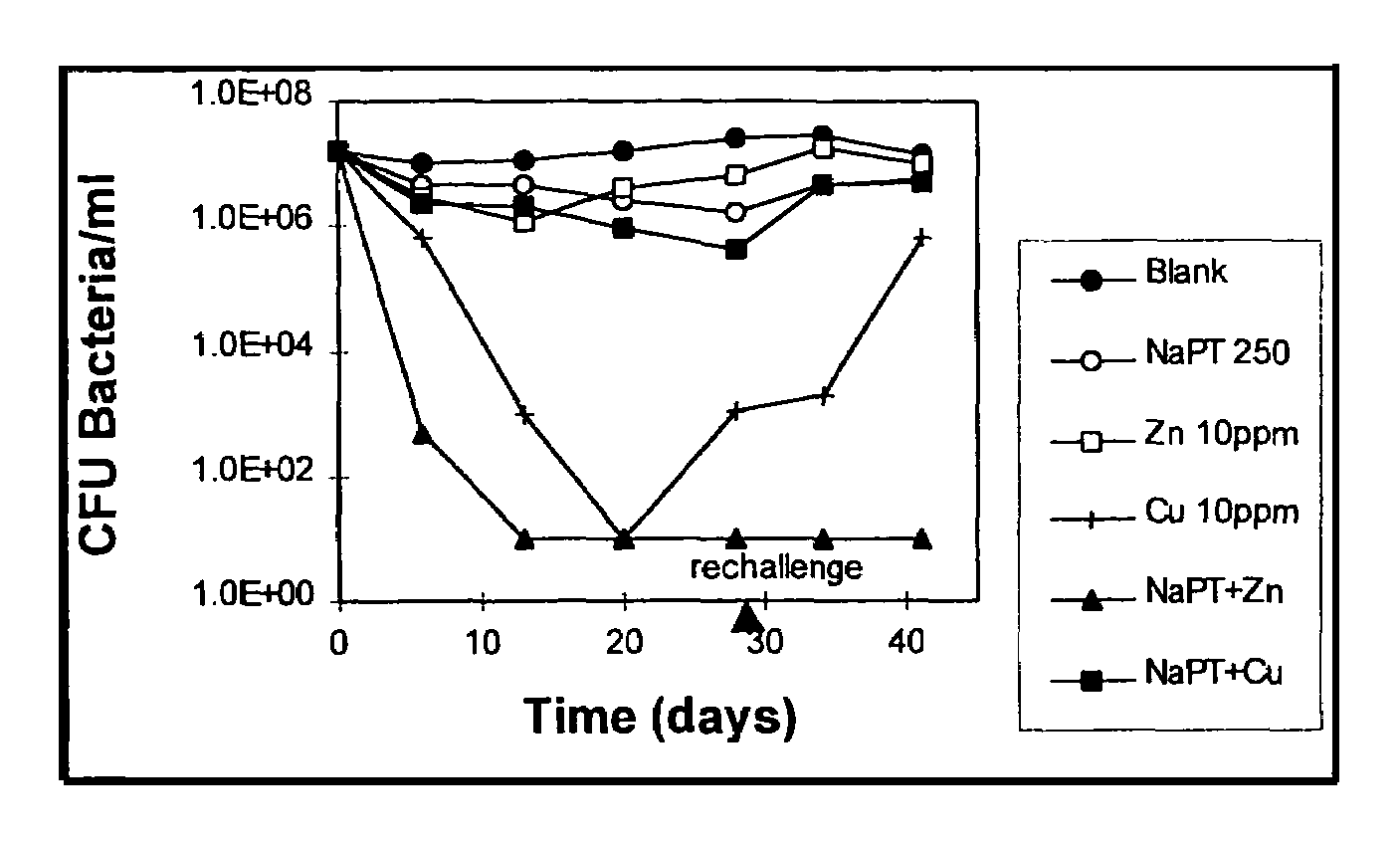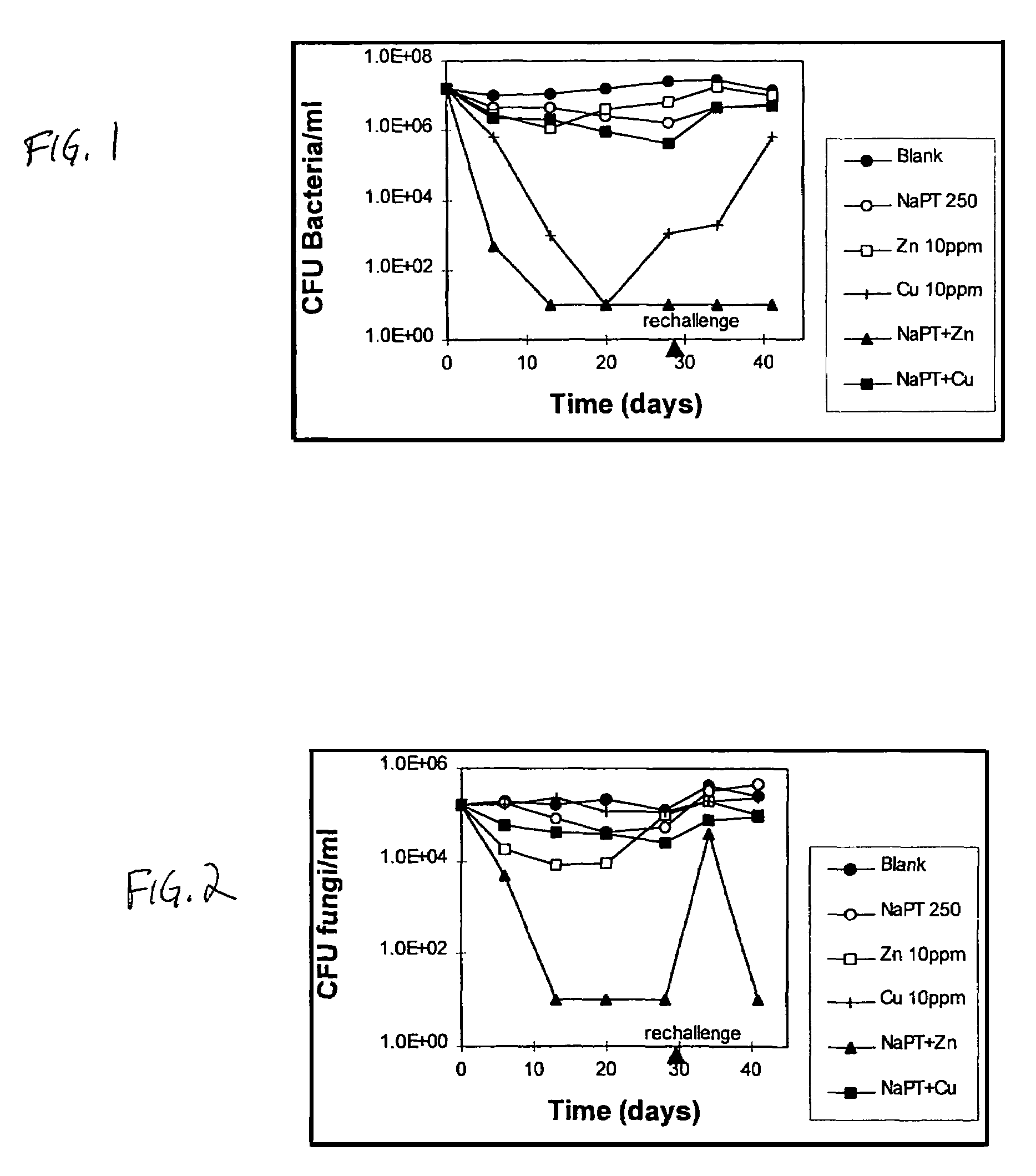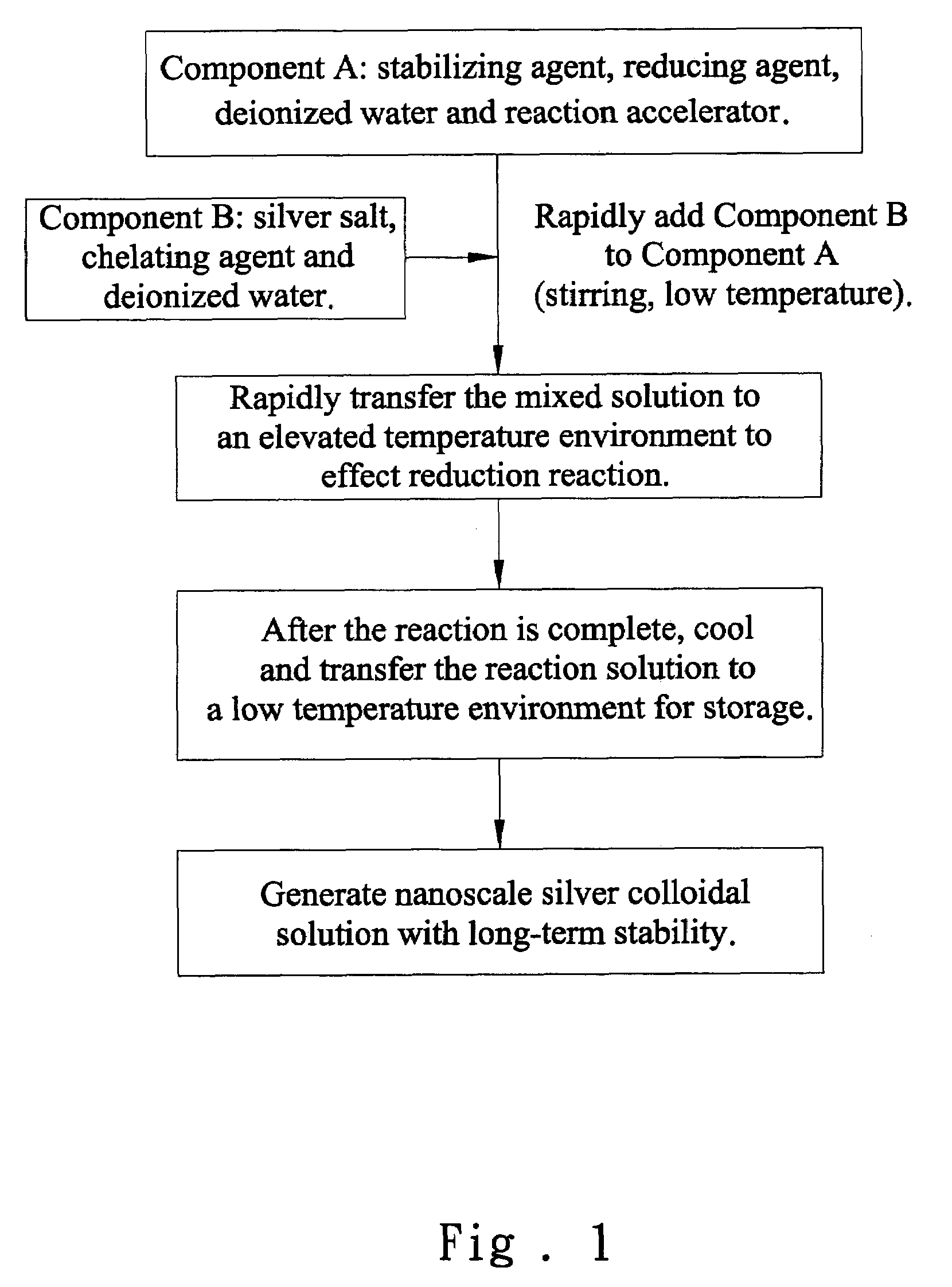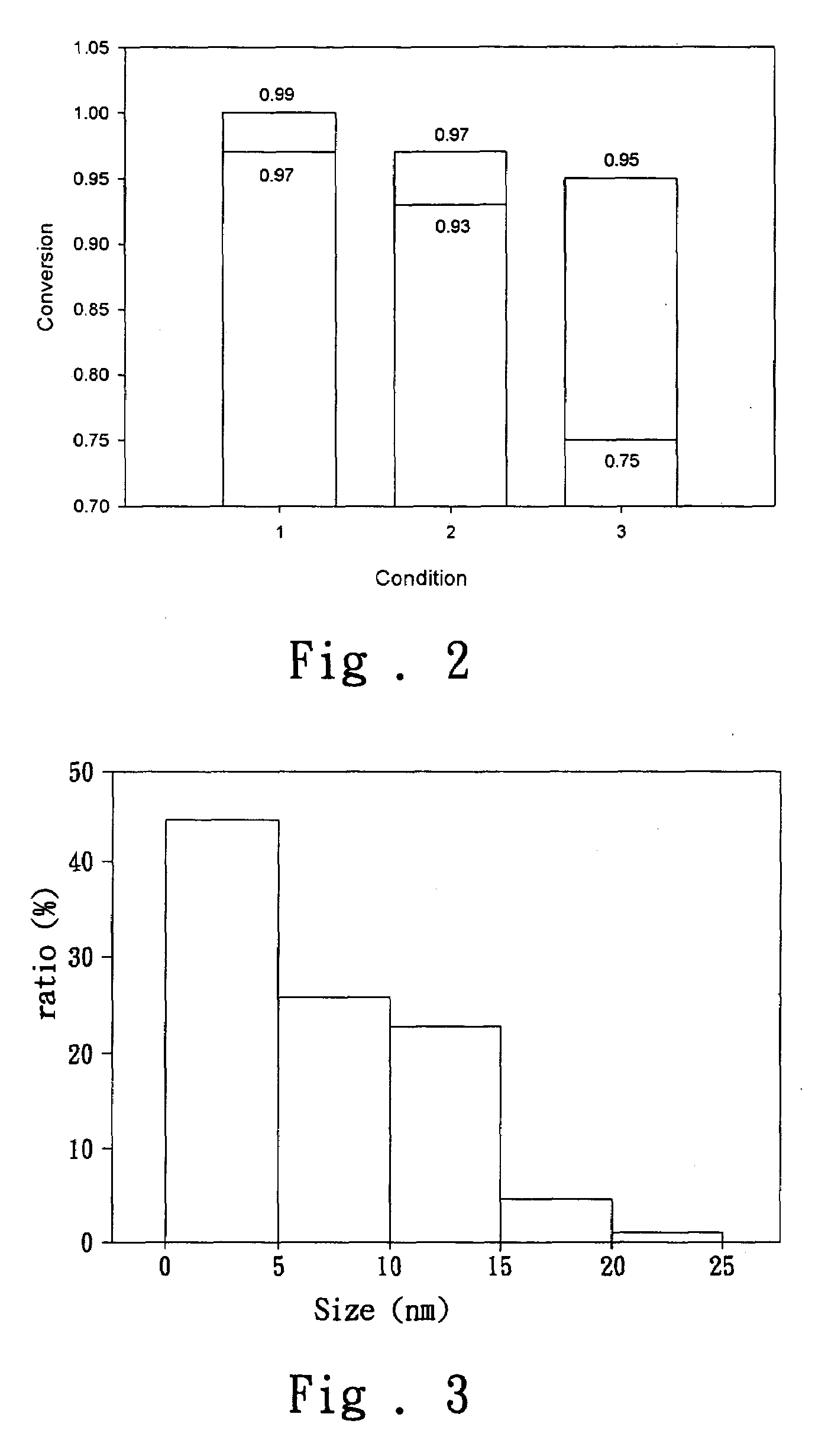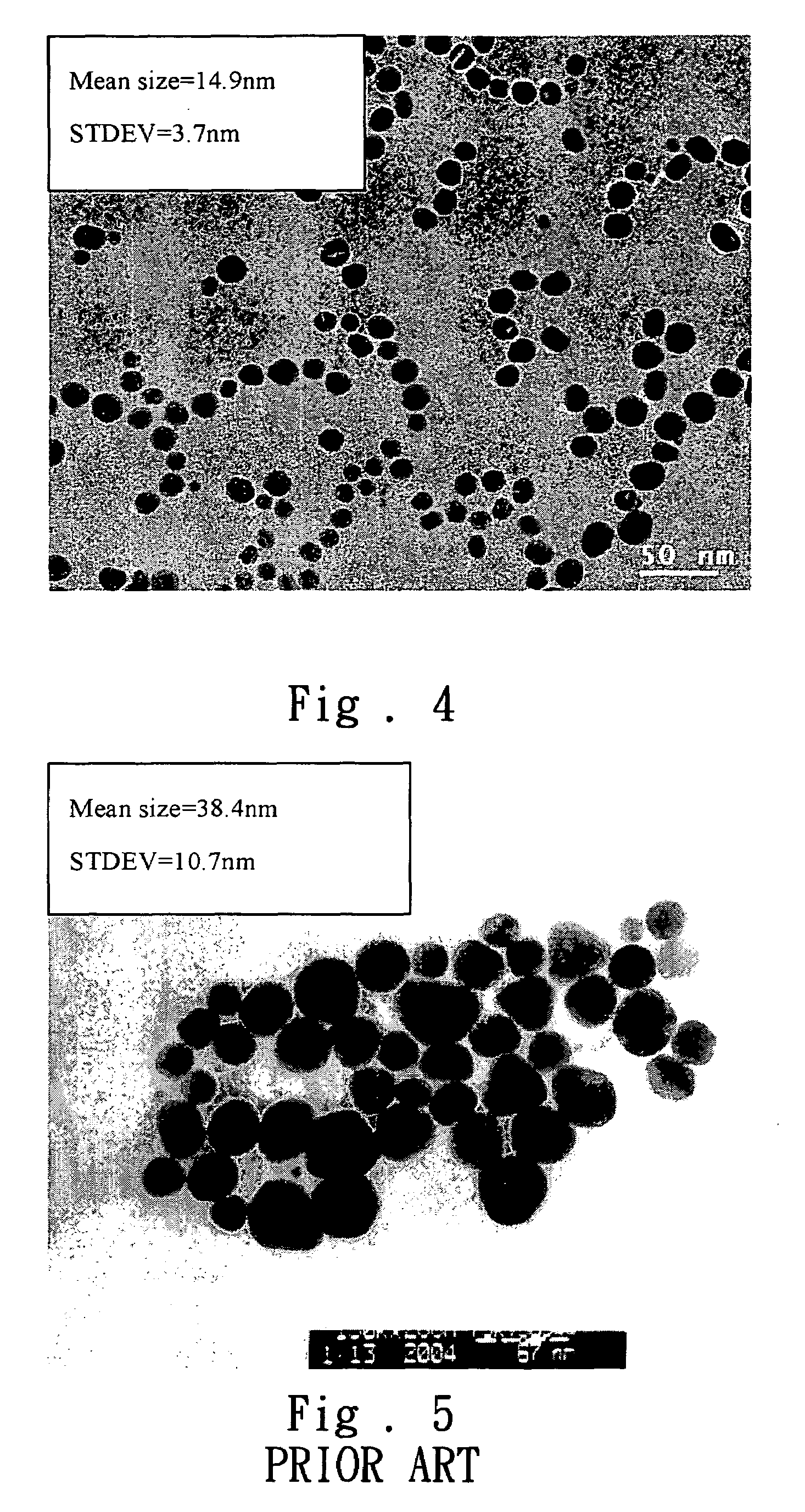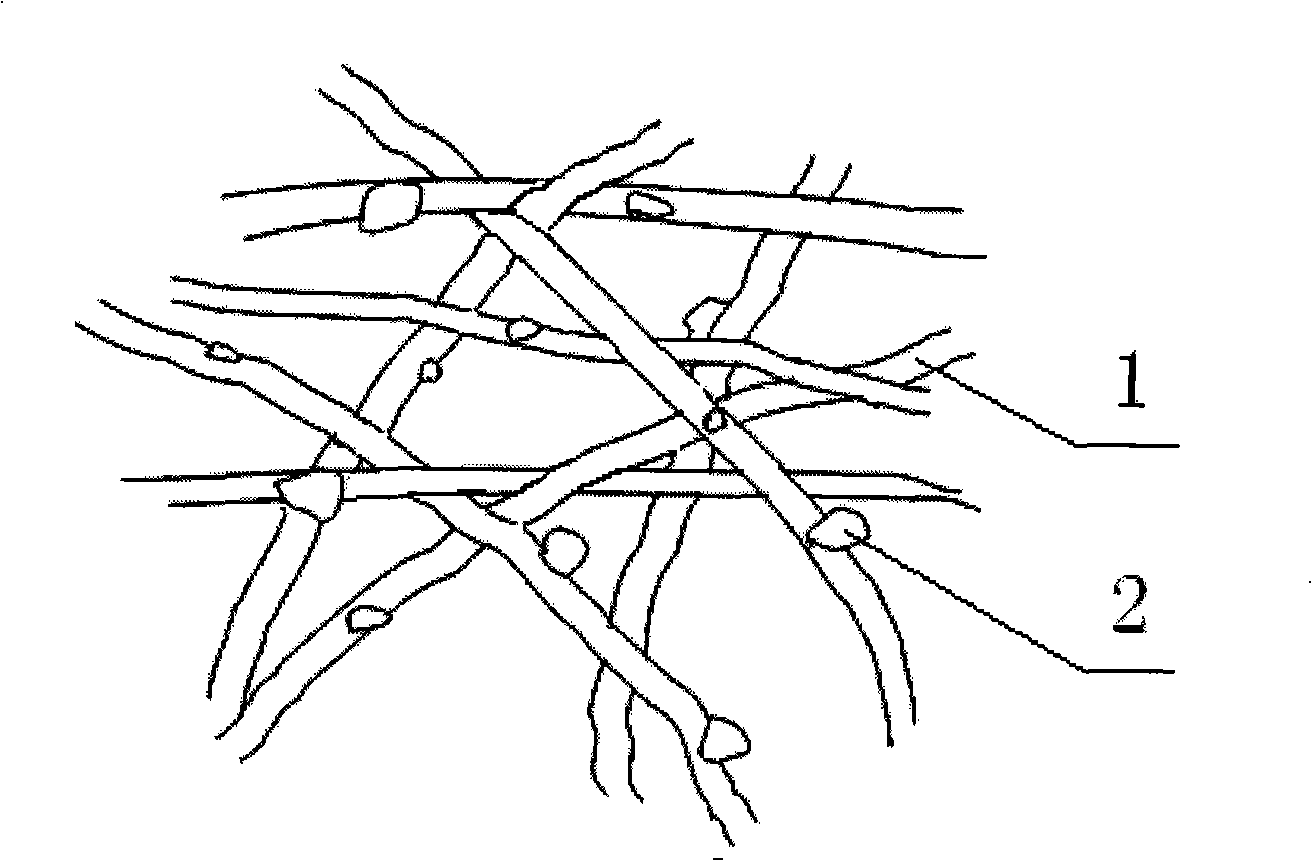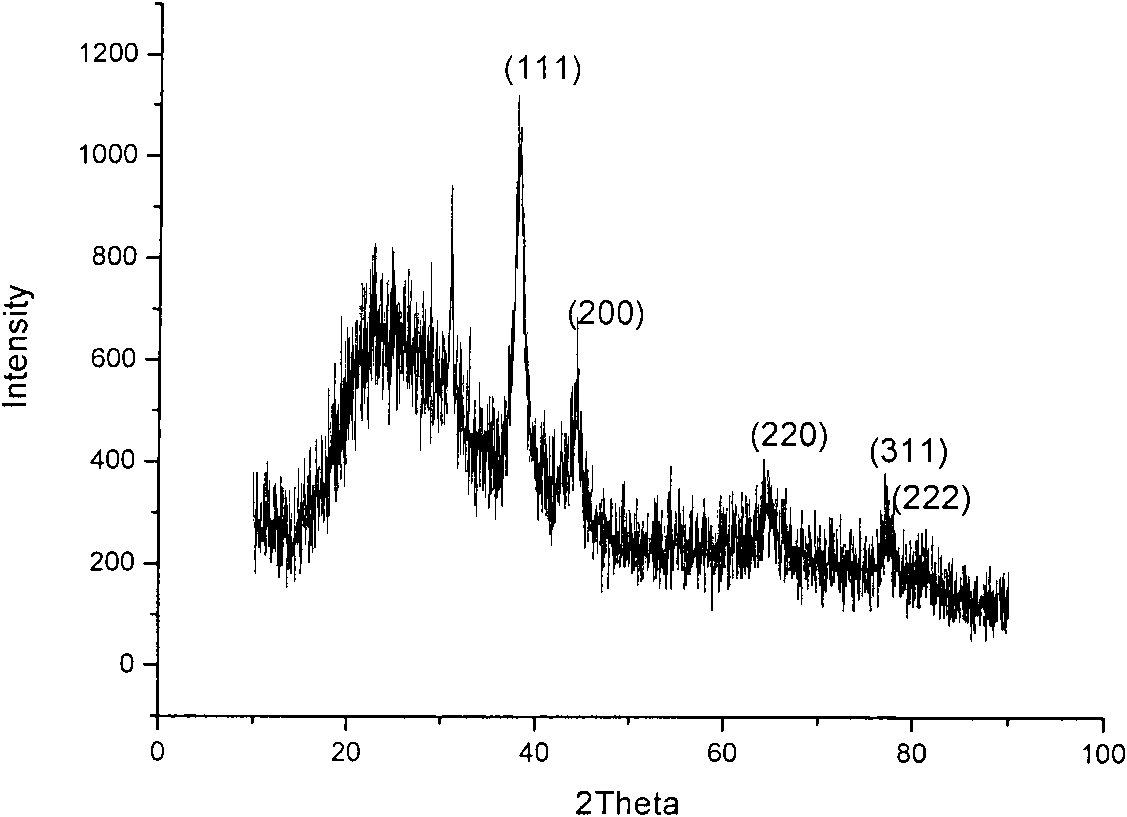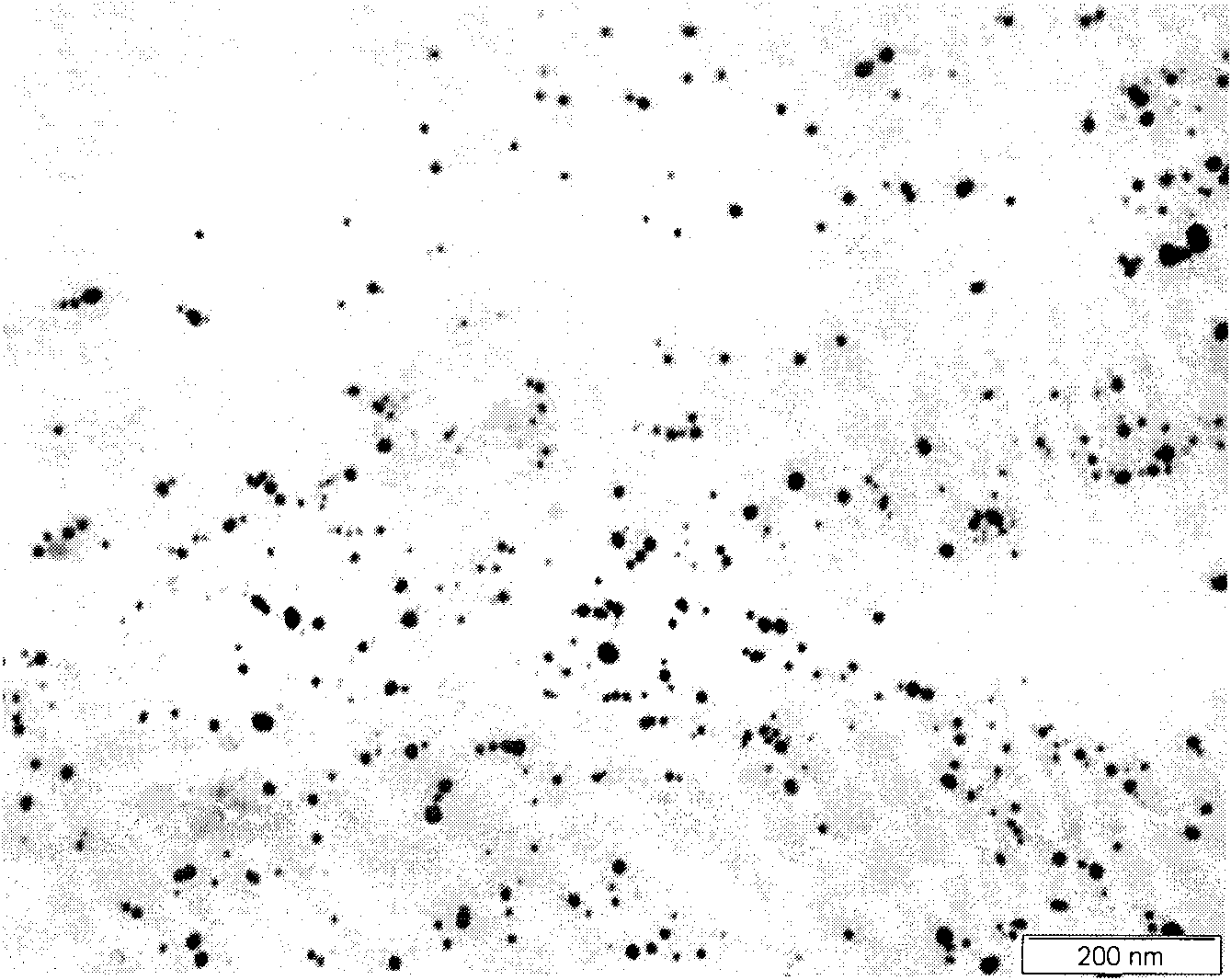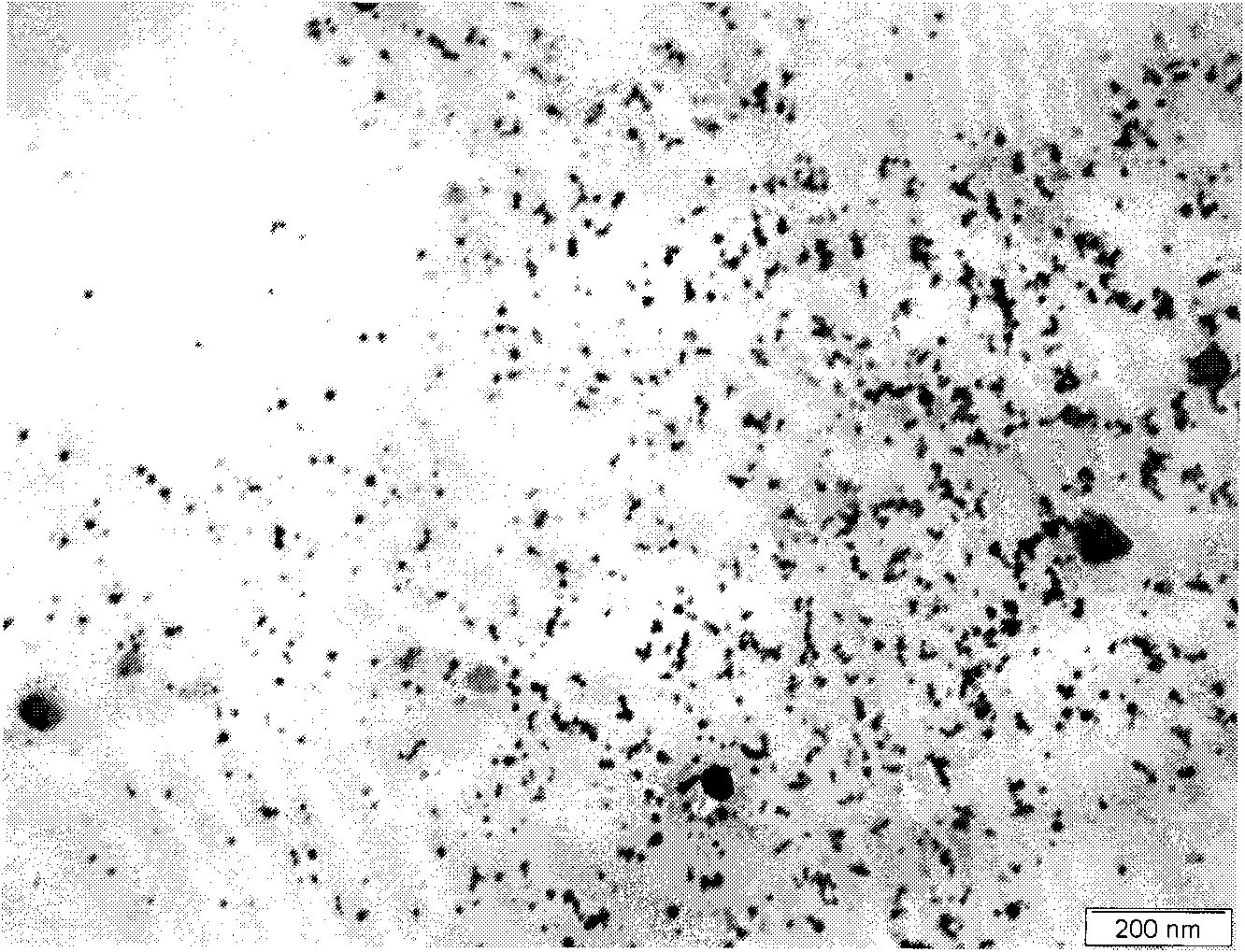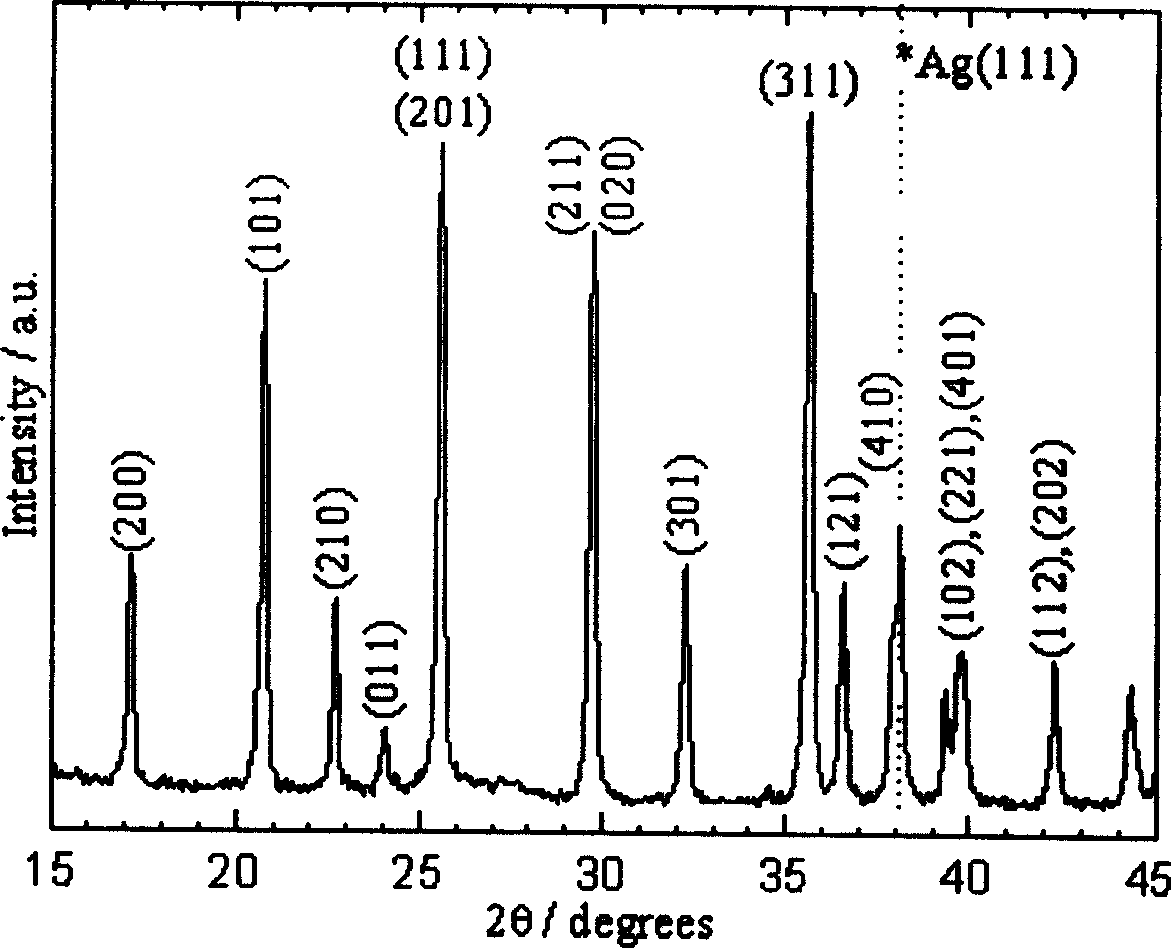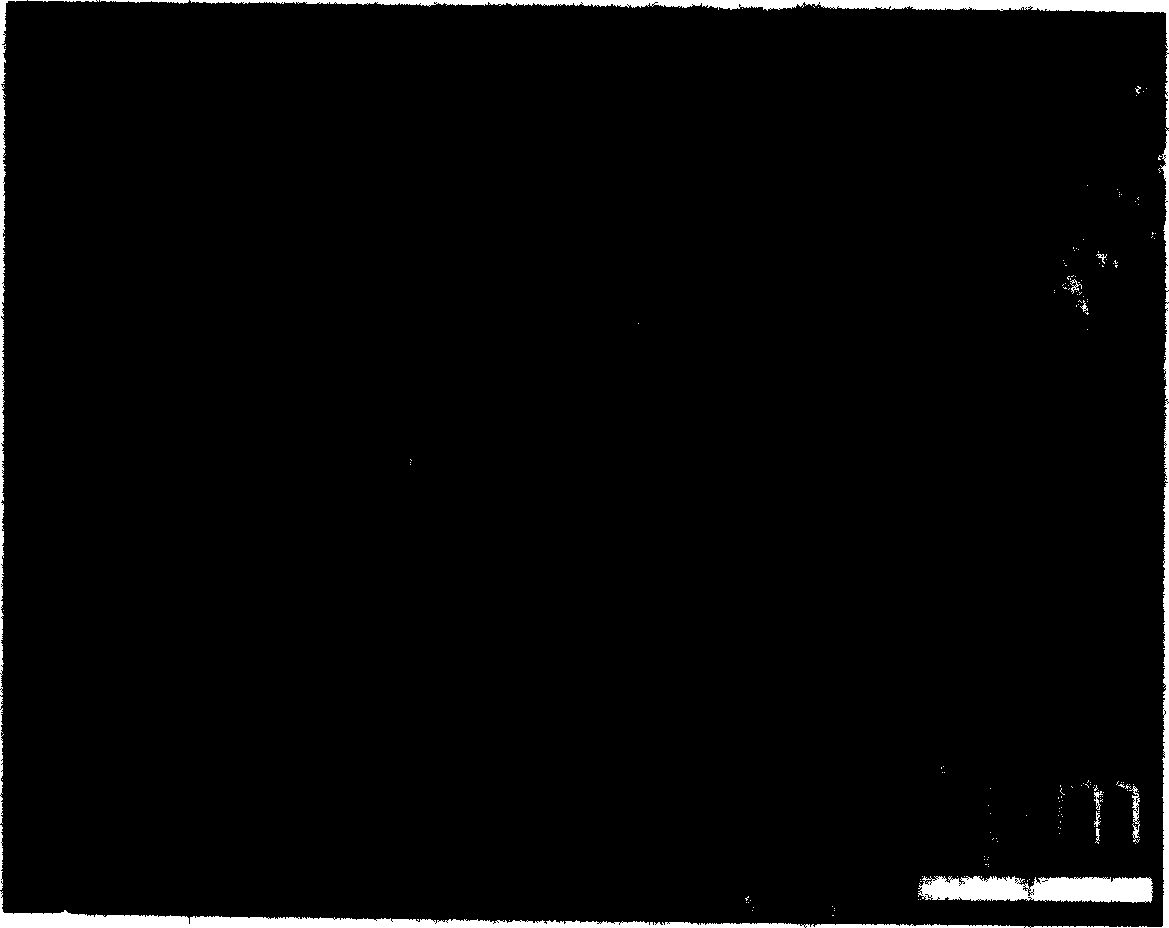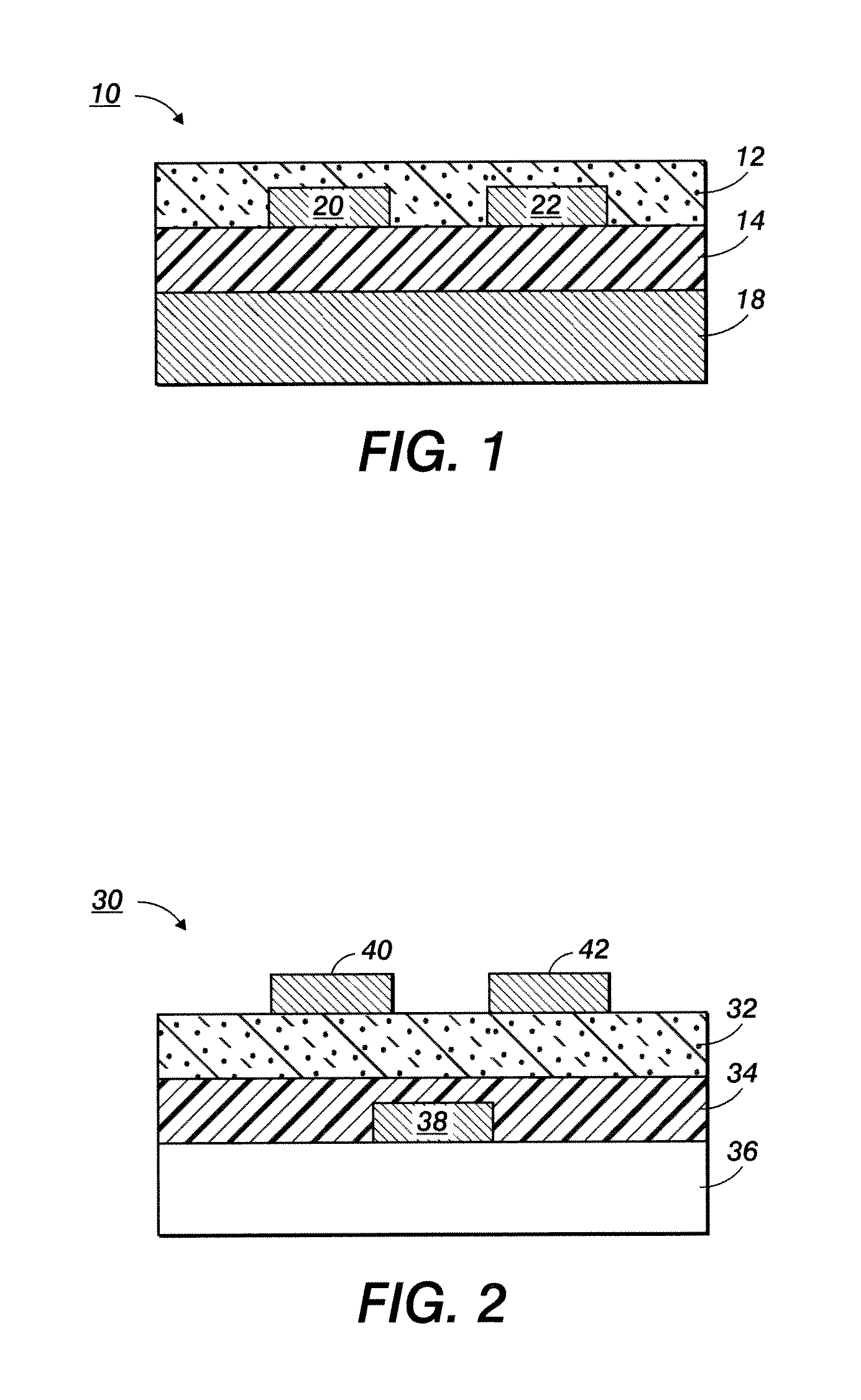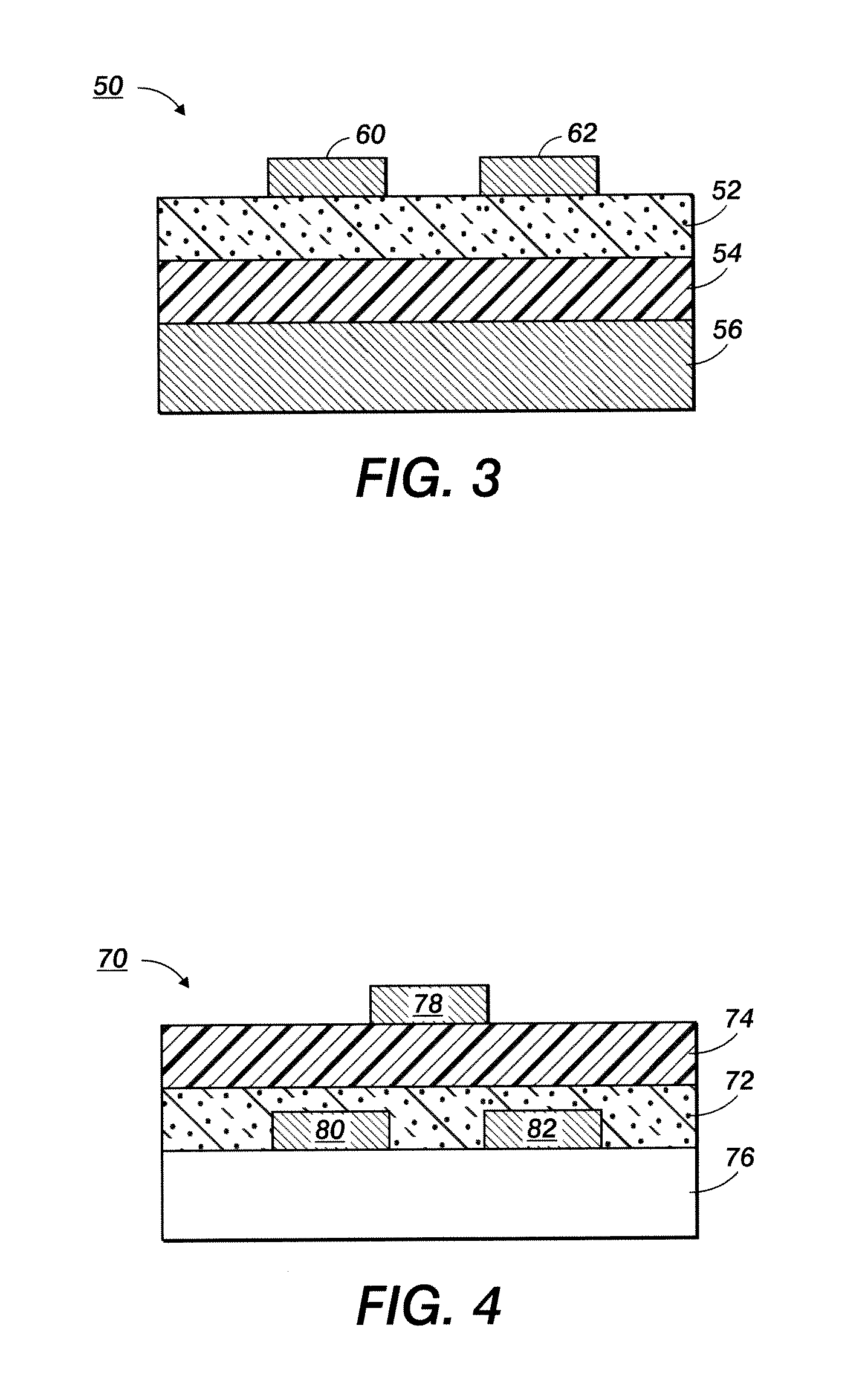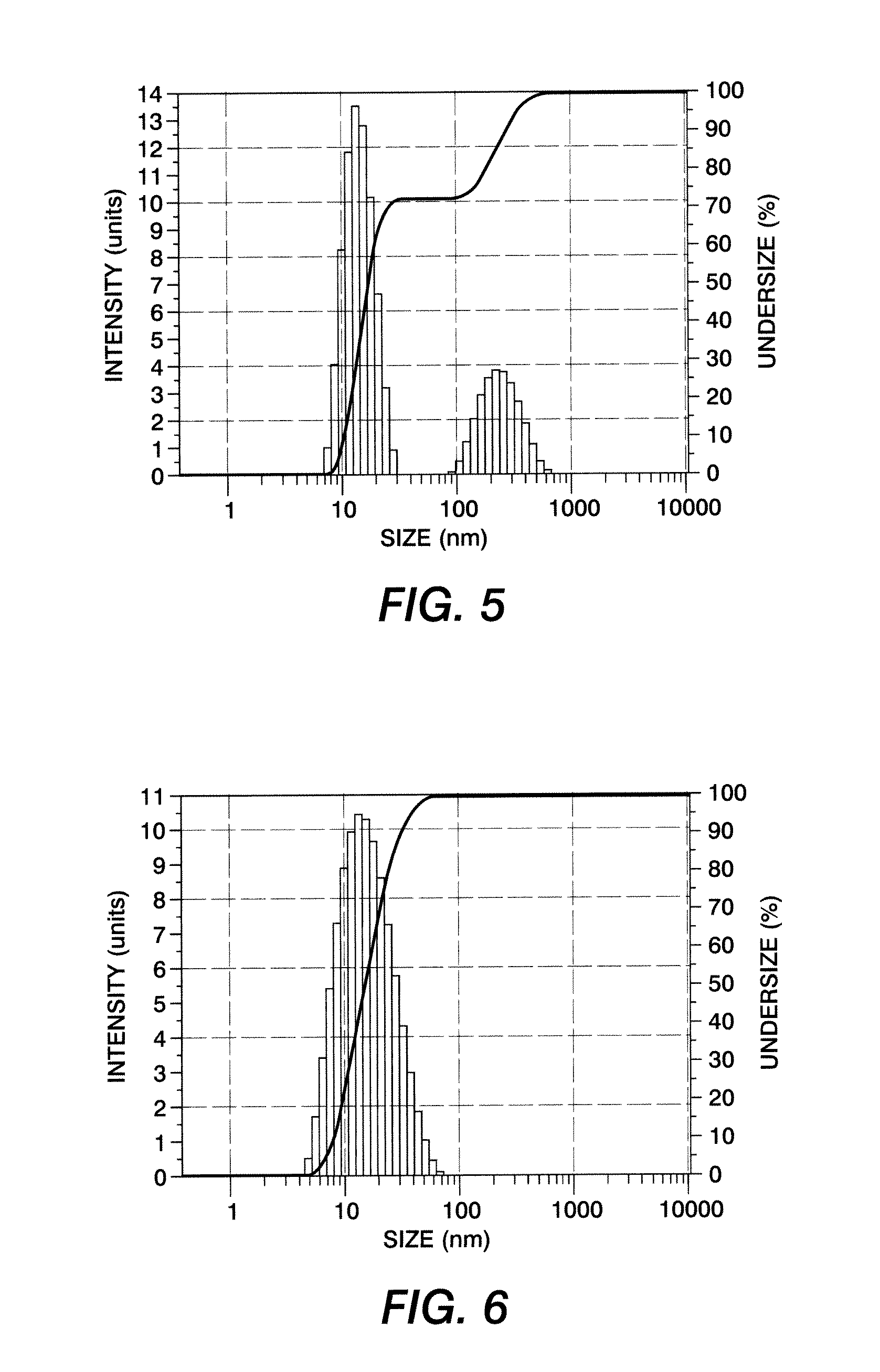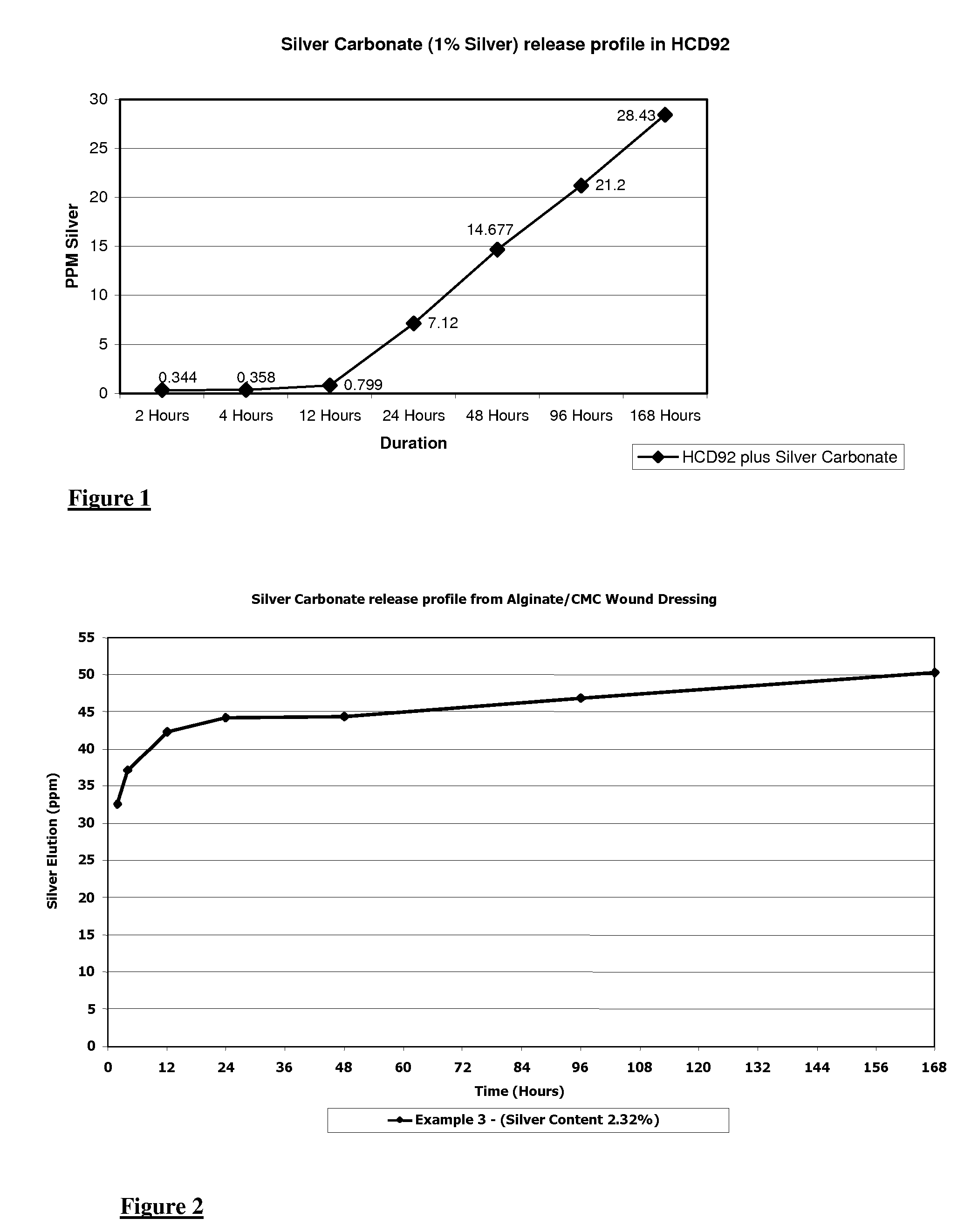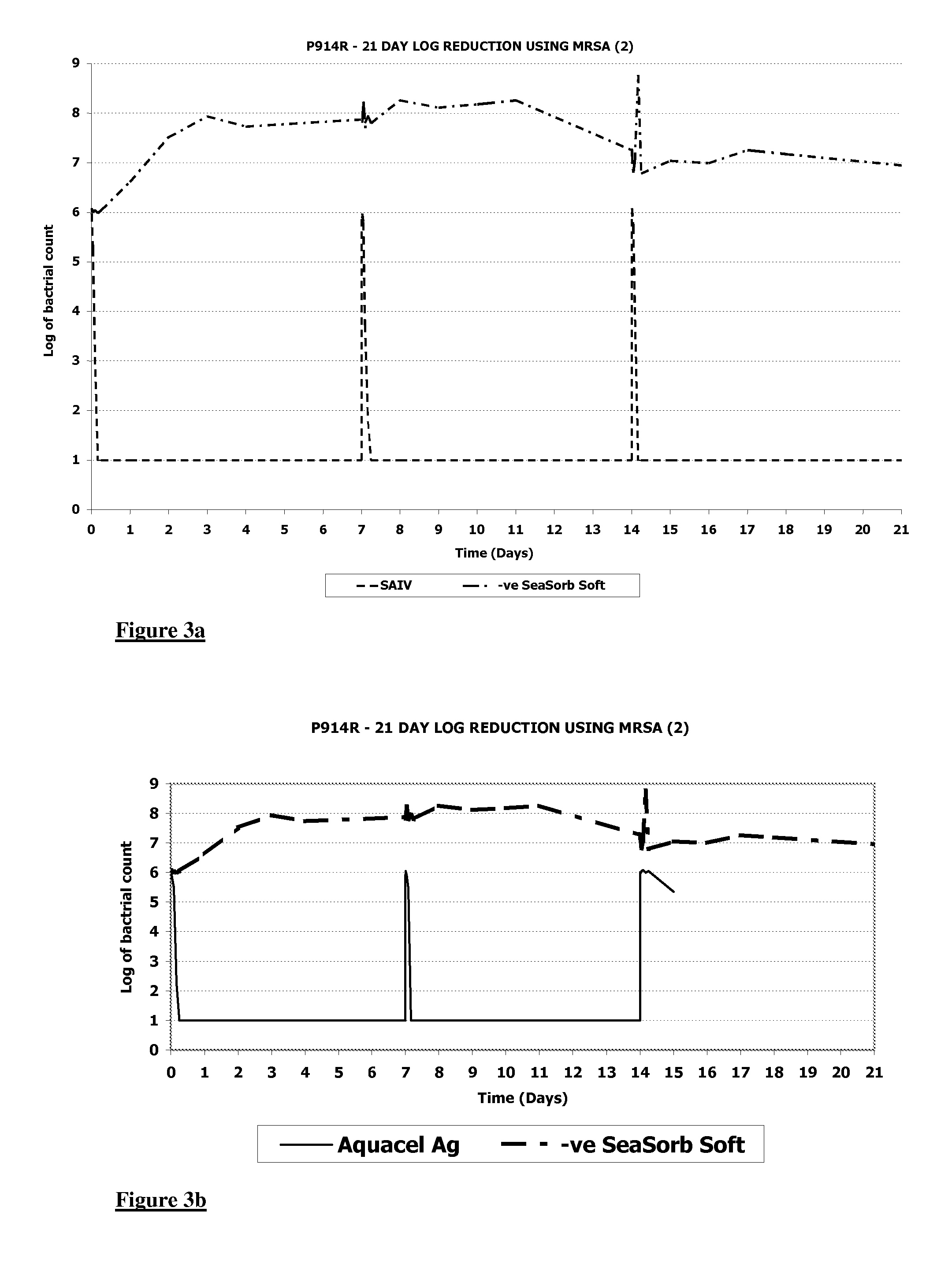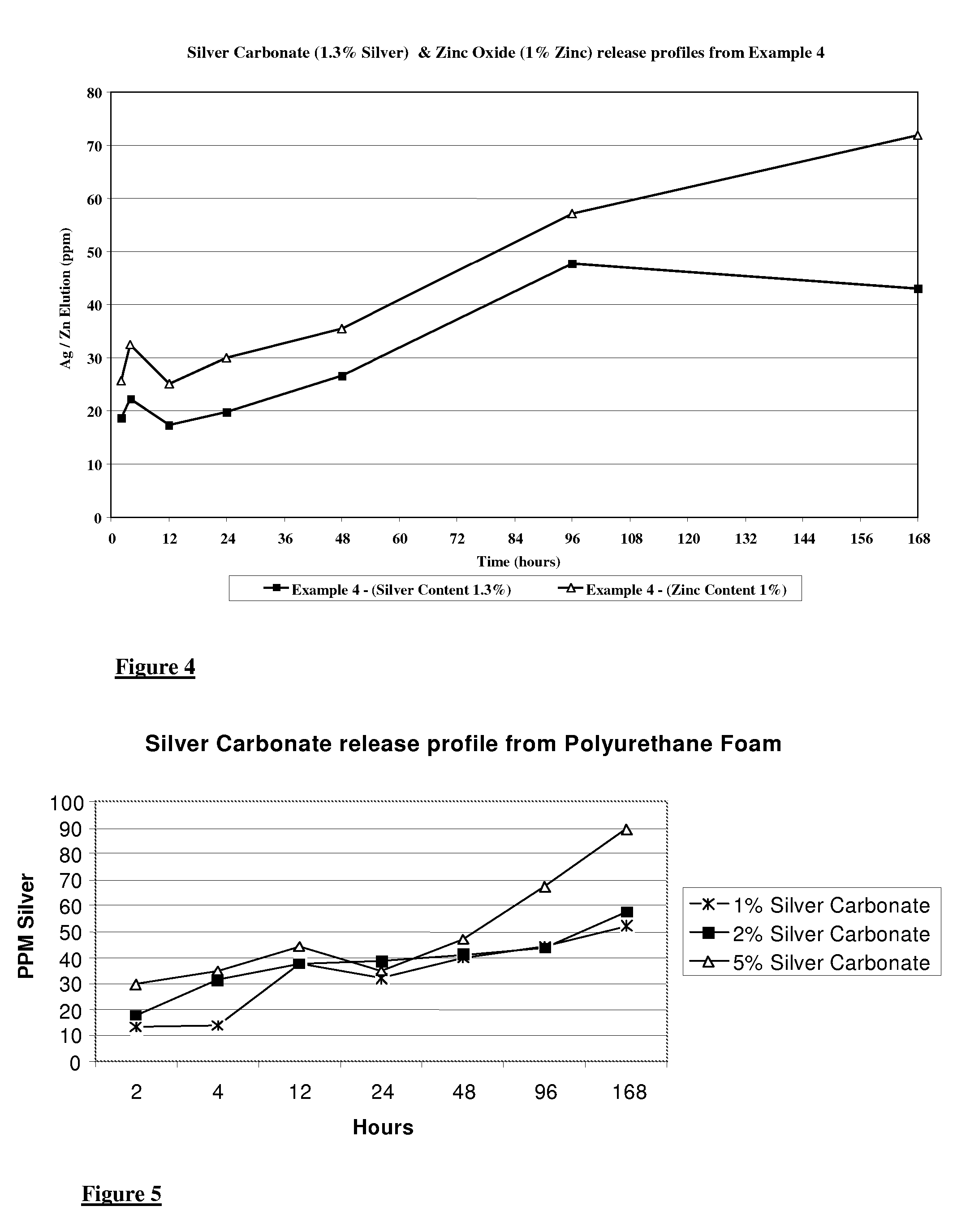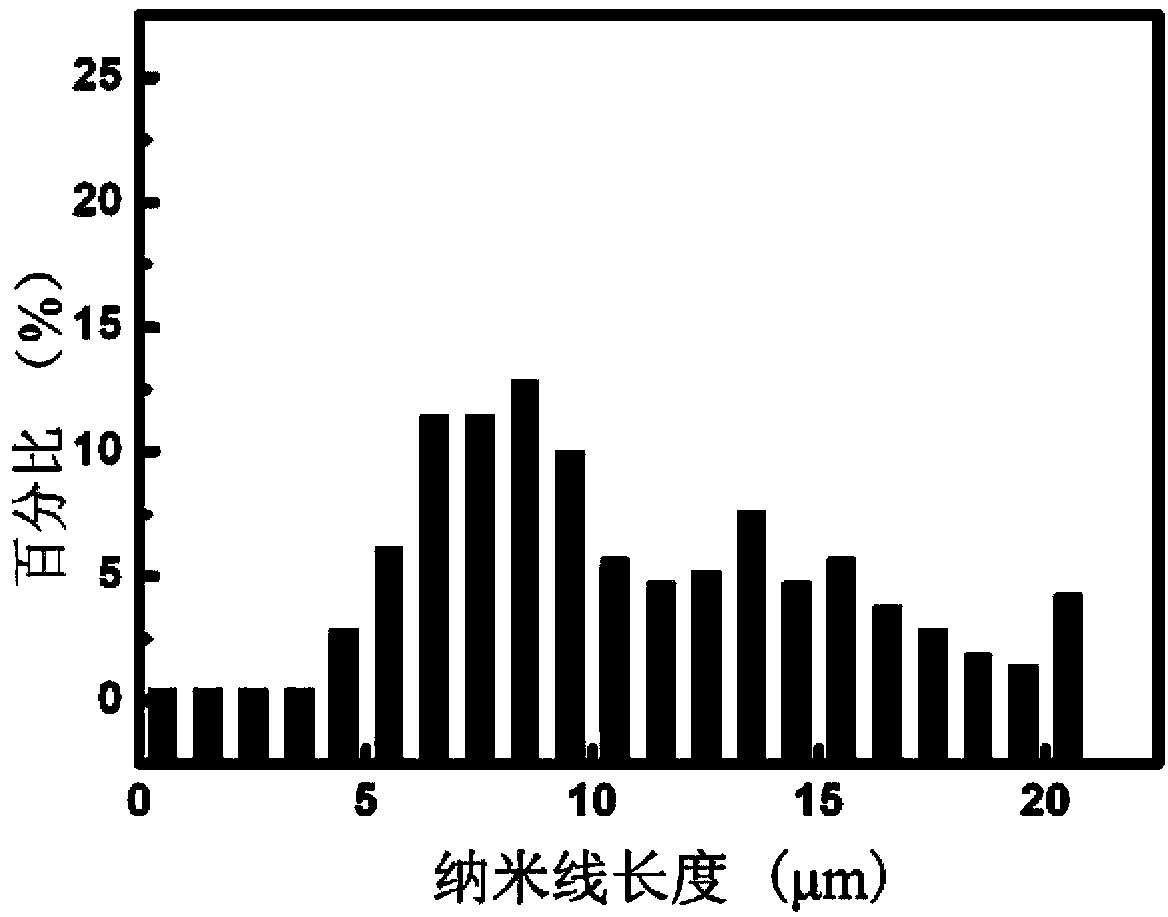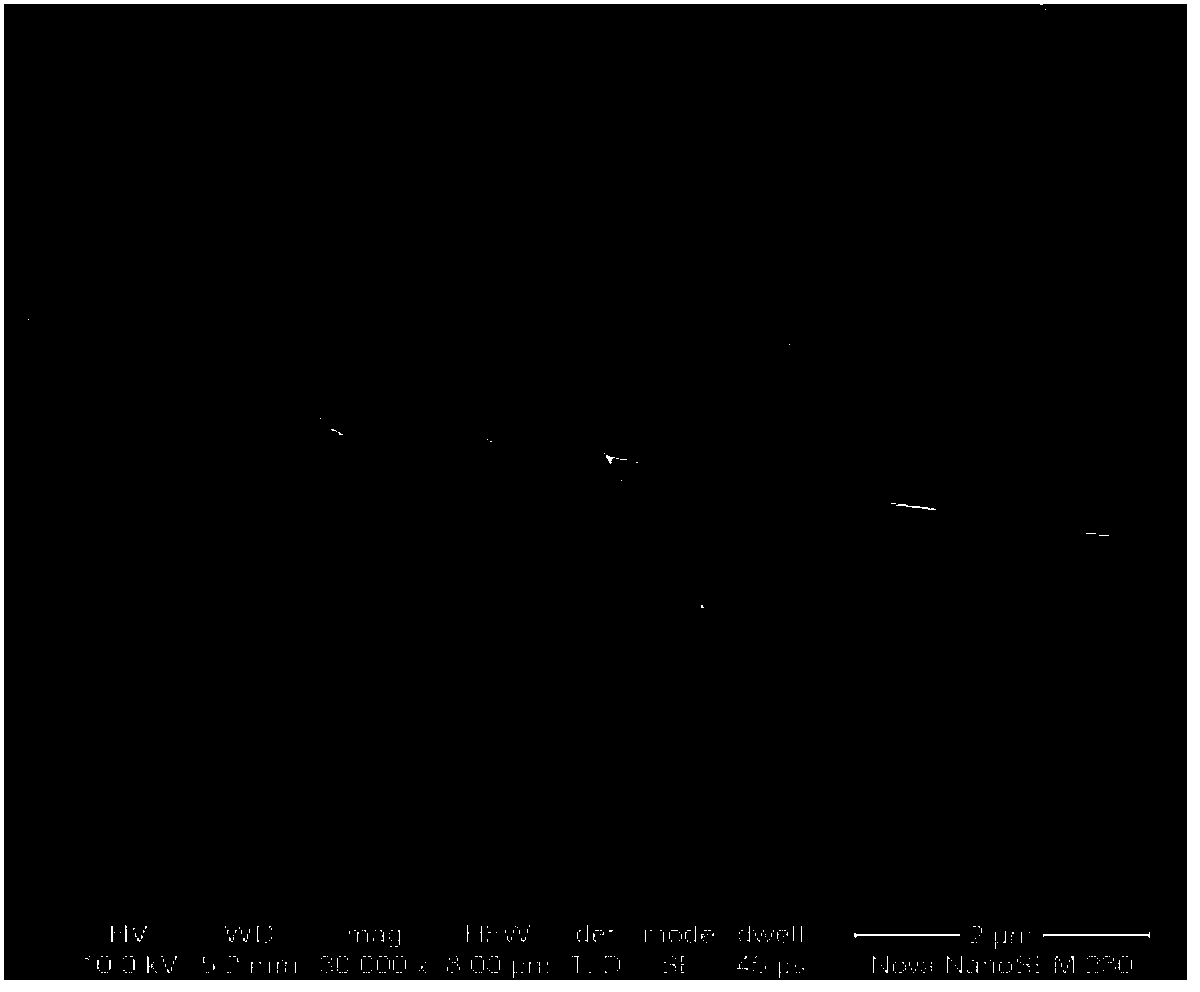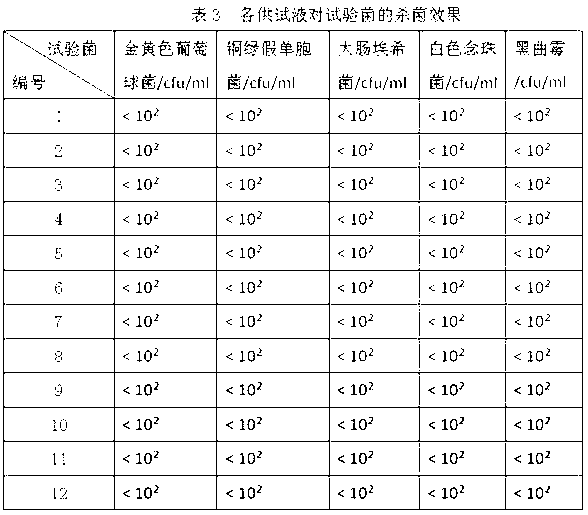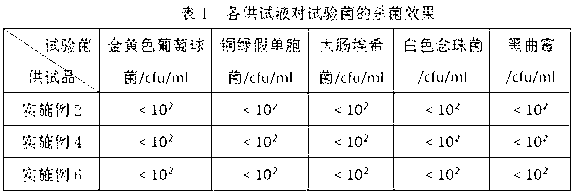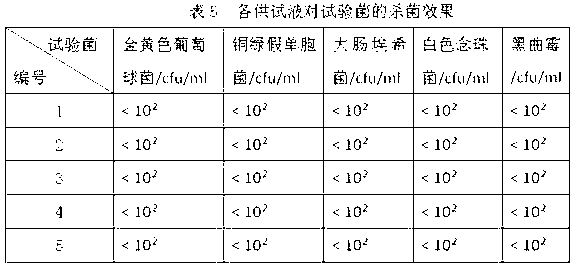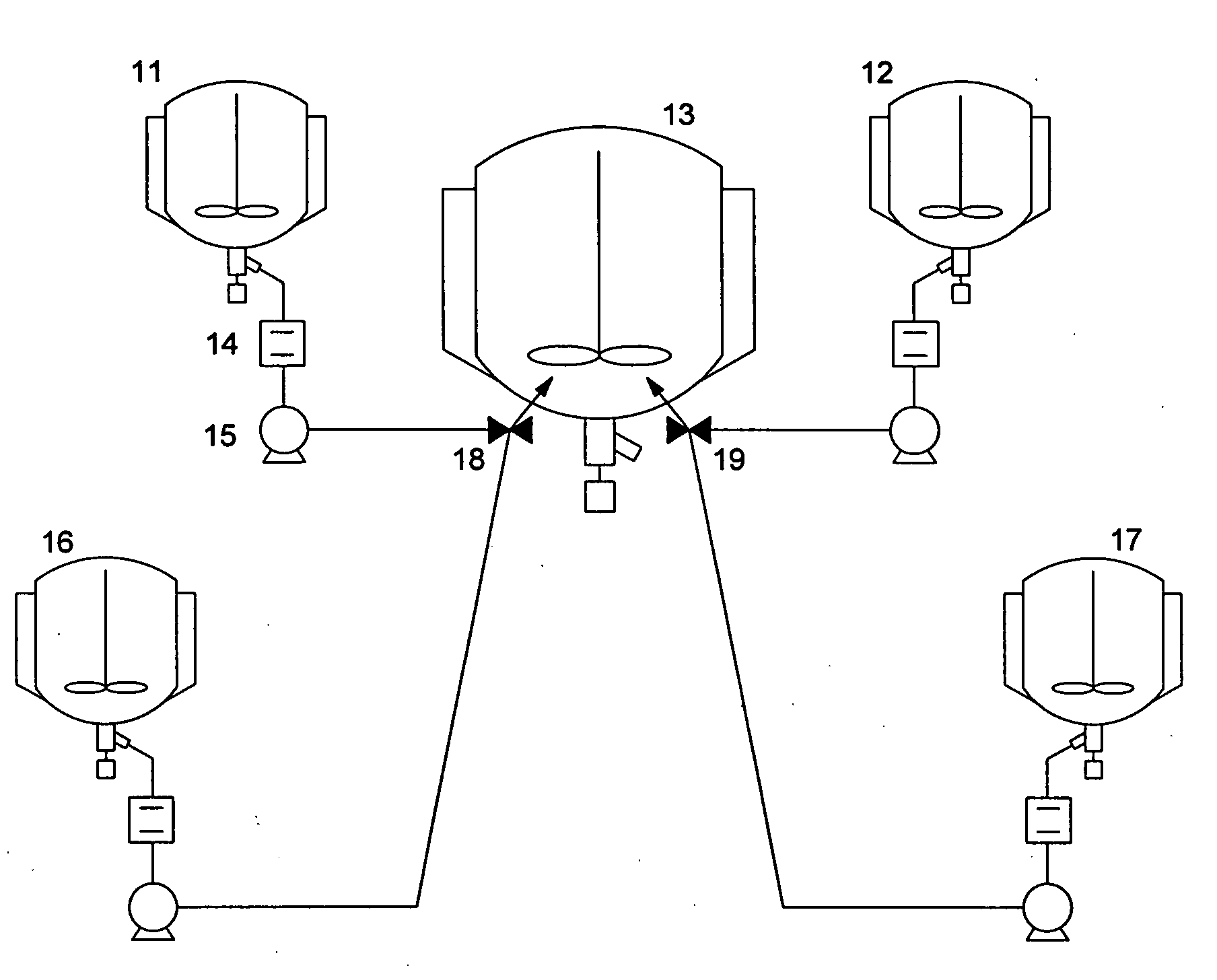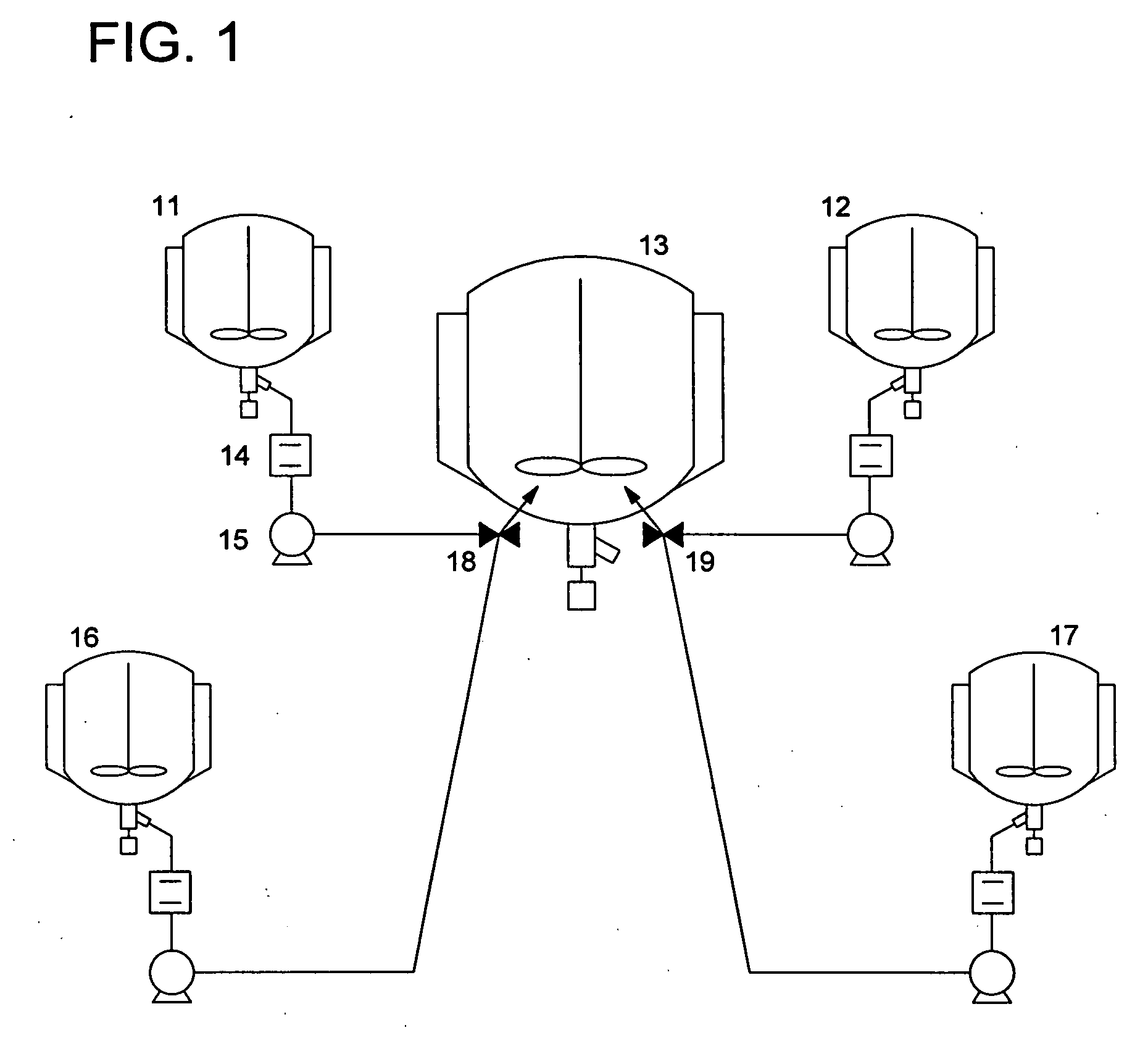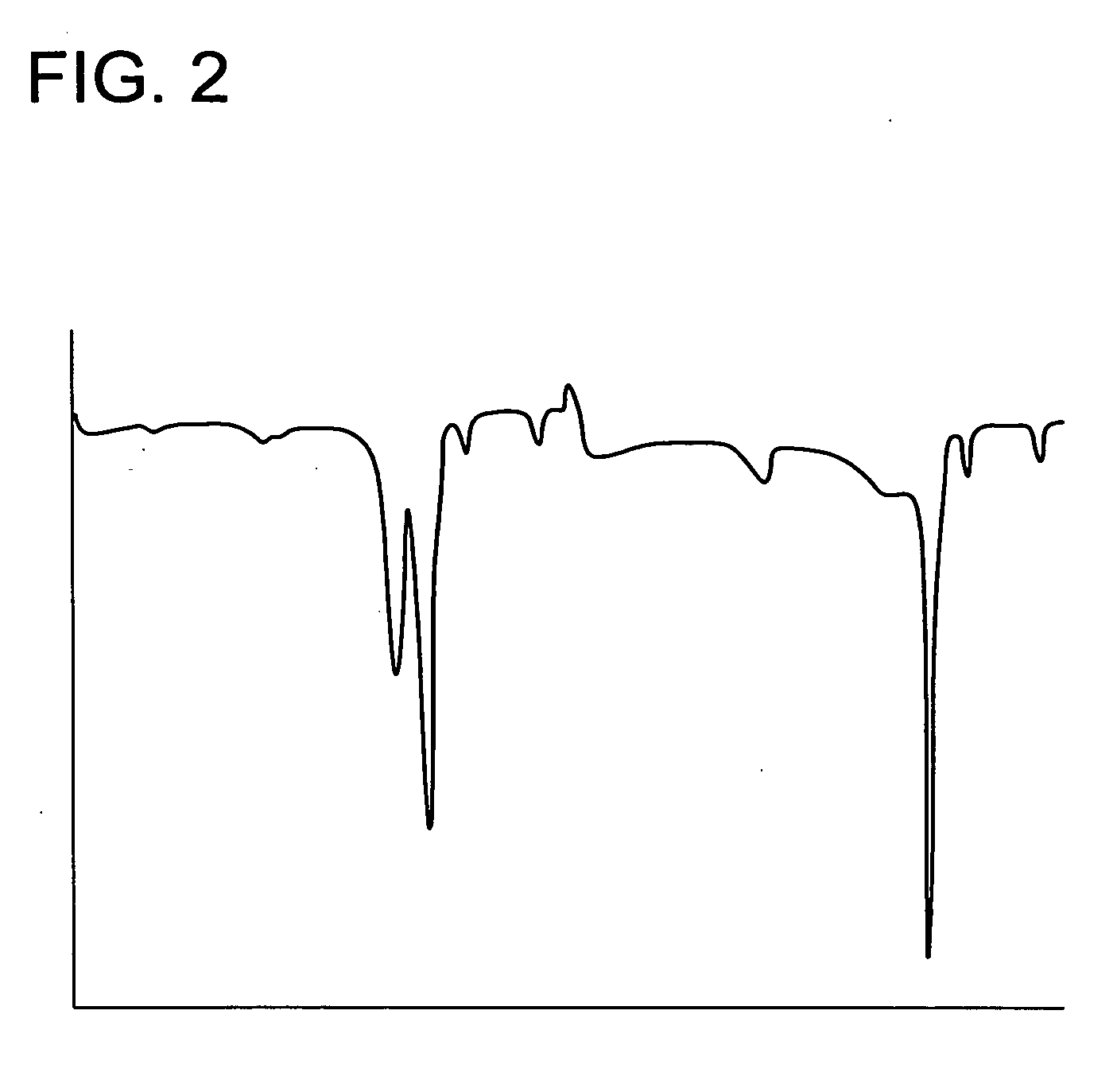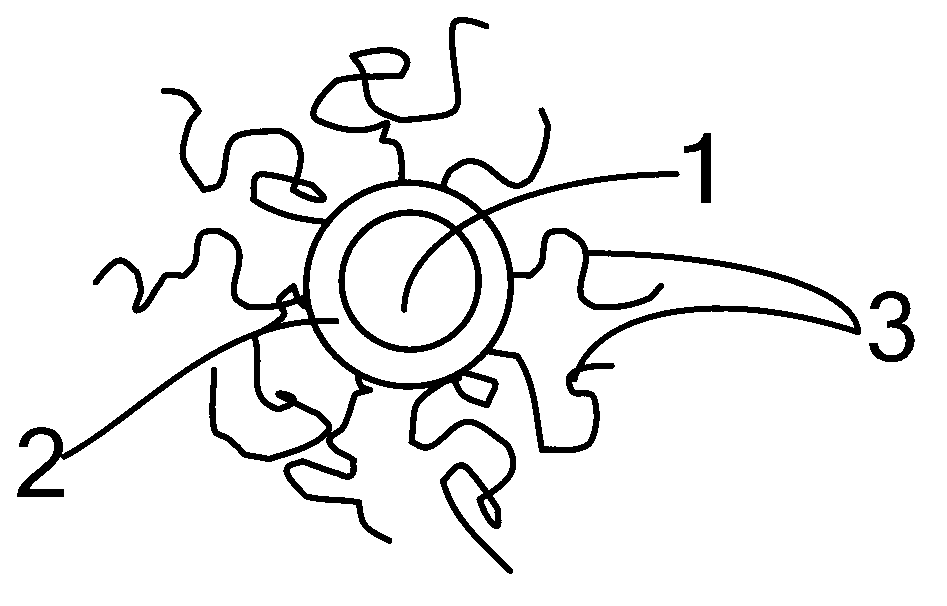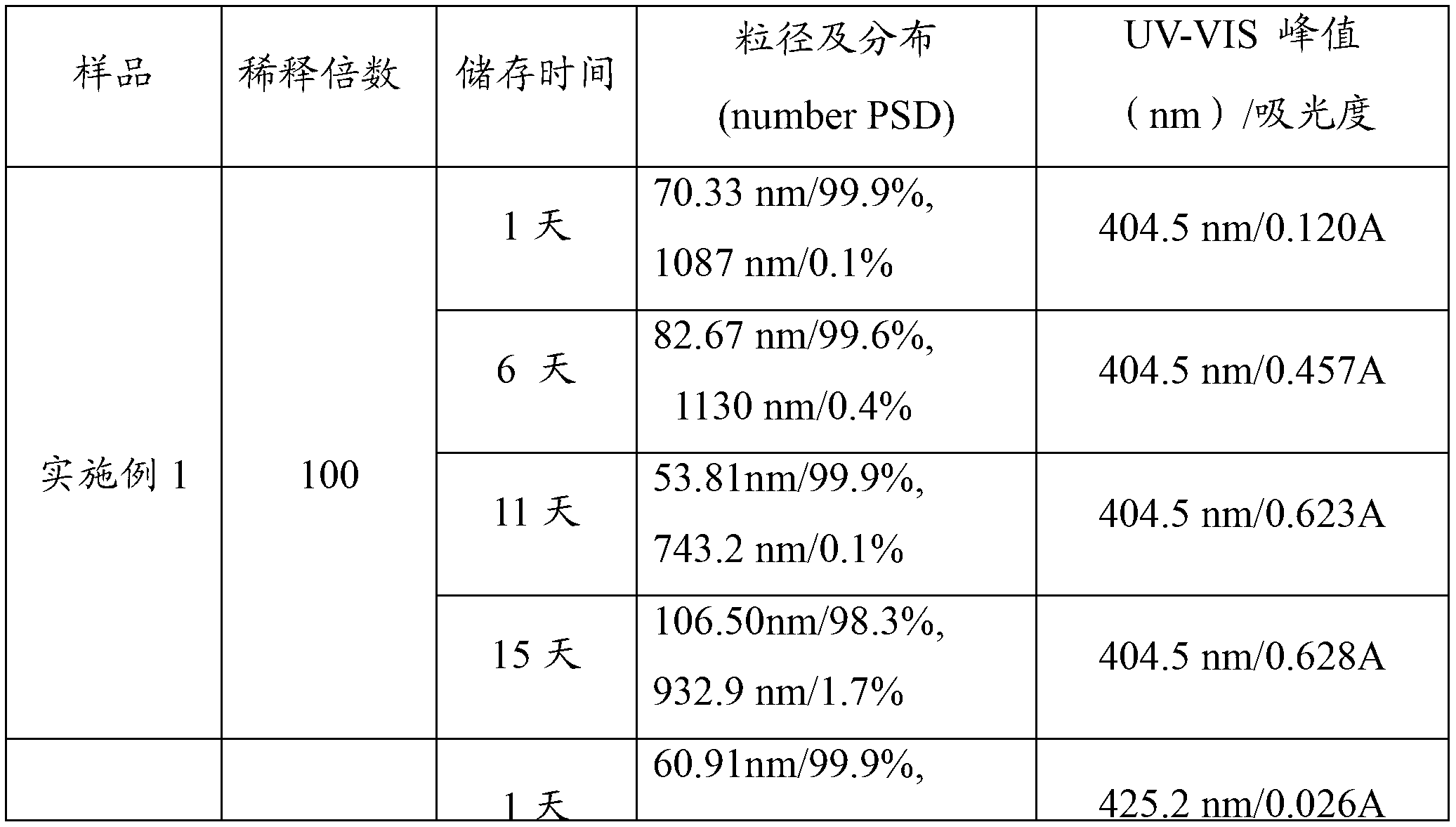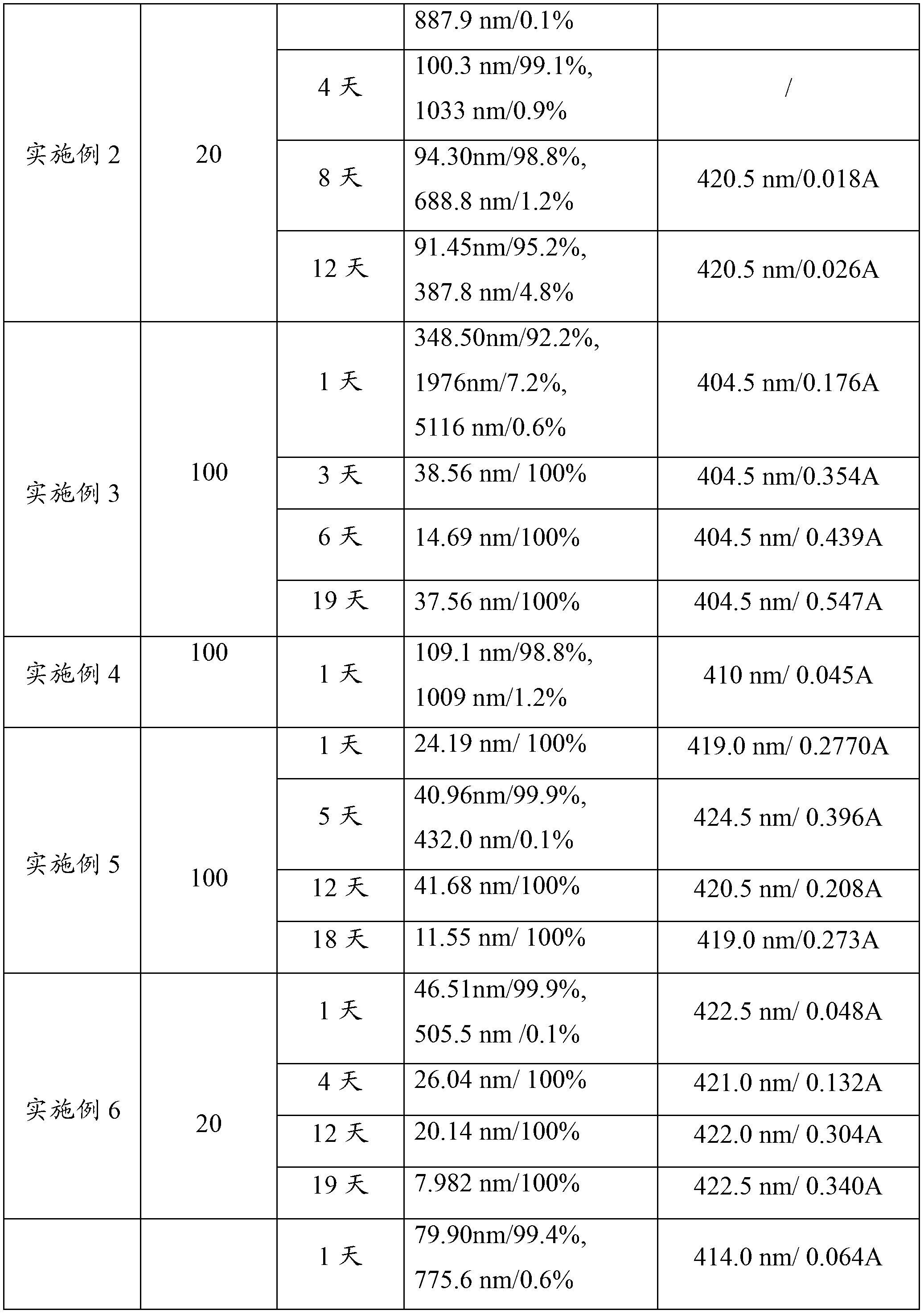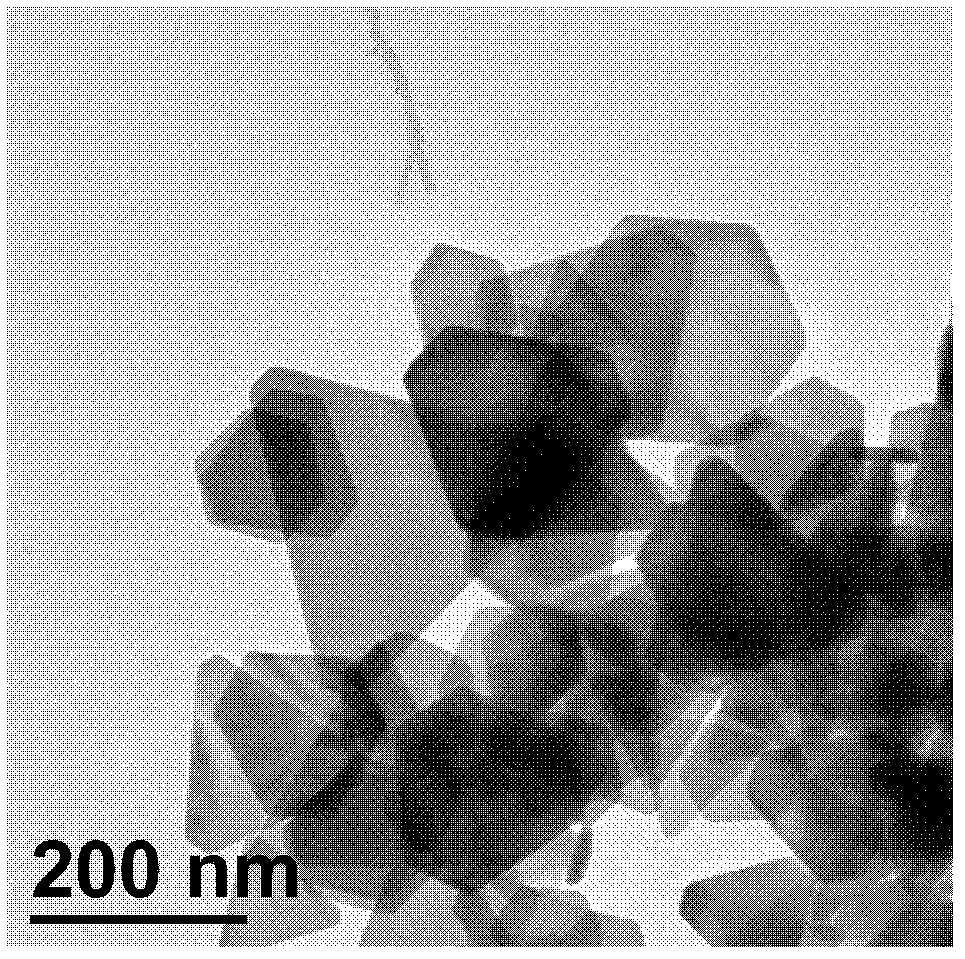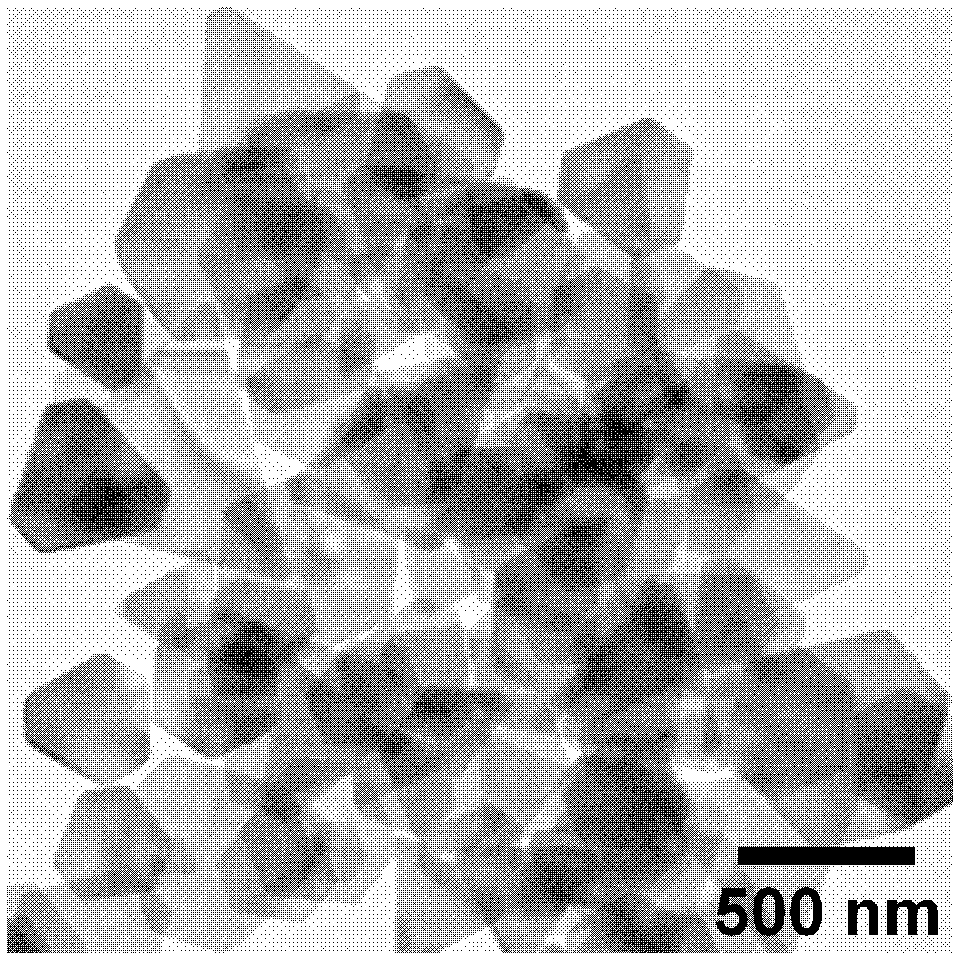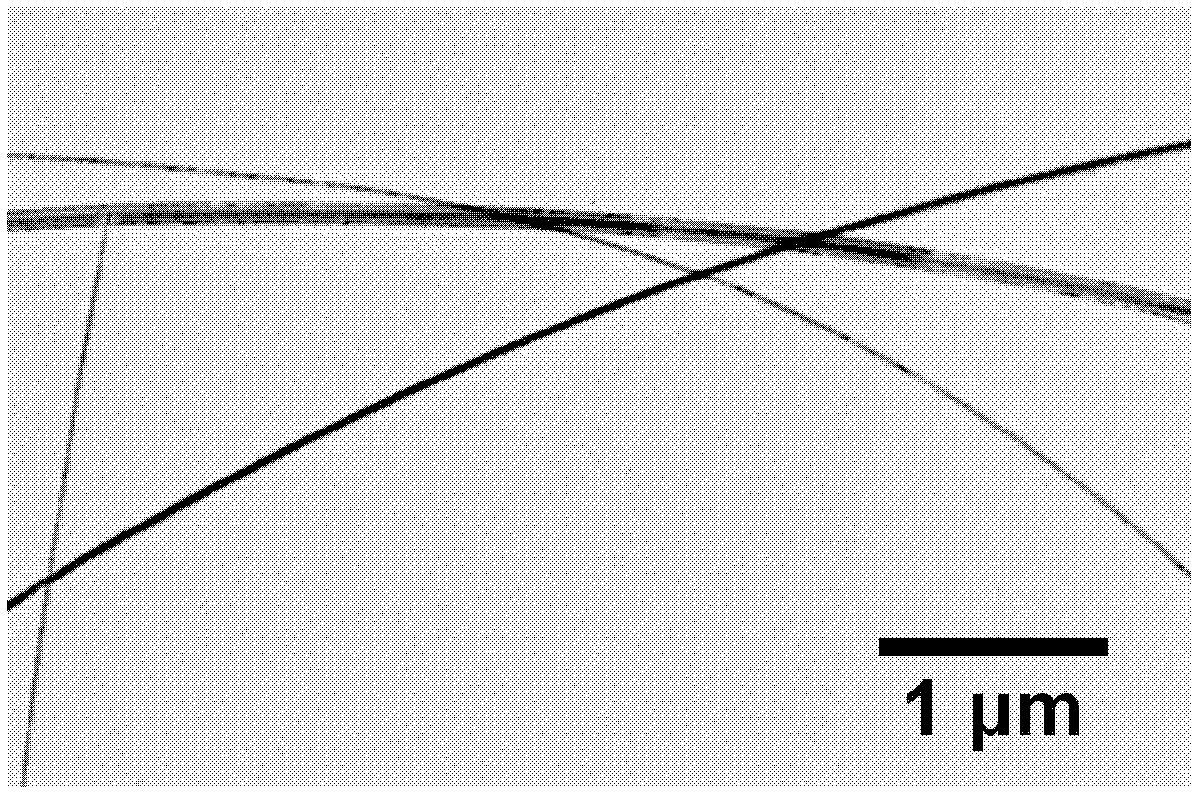Patents
Literature
1185 results about "Silver salts" patented technology
Efficacy Topic
Property
Owner
Technical Advancement
Application Domain
Technology Topic
Technology Field Word
Patent Country/Region
Patent Type
Patent Status
Application Year
Inventor
Definition of silver salt. 1 : a salt of silver. 2 : a silvery crystalline salt C14H7O2SO3Na used in dye manufacture : the sodium salt of anthraquinone-2-sulfonic acid.
Photothermographic recording material coatable from an aqueous medium
InactiveUS6143488AImprove imaging effectImprove stabilityRadiation applicationsPhotothermographic systemsSilver iodideWater dispersible
A process for producing a photothermographic recording material having a support and a photo-addressable thermally developable element containing photosensitive silver halide in catalytic association with a substantially light-insensitive silver salt of an organic carboxylic acid, an organic reducing agent for the substantially light-insensitive silver salt of an organic carboxylic acid in thermal working relationship therewith and a binder including a water-soluble binder, a water-dispersible binder or a mixture of a water-soluble binder and a water-dispersible binder, comprising the steps of: (i) producing an aqueous dispersion or aqueous dispersions containing photosensitive silver halide, a substantially light-insensitive silver salt of an organic carboxylic acid, an organic reducing agent for the substantially light-insensitive silver salt of an organic carboxylic acid and a binder including a water-soluble binder, a water-dispersible binder or a mixture of a water-soluble binder and a water-dispersible binder; (ii) coating the aqueous dispersion or aqueous dispersions onto a support thereby forming a photo-addressable thermally developable element on the support, wherein at least 80 mol % of the photosensitive silver halide is silver iodide and the aqueous dispersion further contains or the aqueous dispersions further contain a diazine compound.
Owner:AGFA HEALTHCARE NV
Polymer compositions containing colloids of silver salts
The present invention relates to antimicrobial compositions, methods for the production of these compositions, and use of these compositions with medical devices, such as catheters, and implants. The compositions of the present invention advantageously provide varying release kinetics for the active ions in the compositions due to the different water solubilities of the ions, allowing antimicrobial release profiles to be tailored for a given application and providing for sustained antimicrobial activity over time. More particularly, the invention relates to polymer compositions containing colloids comprised of salts of one or more oligodynamic metal, such as silver. The process of the invention includes mixing a solution of one or more oligodynamic metal salts with a polymer solution or dispersion and precipitating a colloid of the salts by addition of other salts to the solution which react with some or all of the first metal salts. The compositions can be incorporated into articles or can be employed as a coating on articles such as medical devices.
Owner:CR BARD INC
Aqueous composition containing H2O2, acids and Ag, preparation method therefor and use thereof for disinfection, hygiene and/or pollution control
The present invention relates to an aqueous decontaminating composition comprising(A) an amount of H2O2 less than or equal to 60% by weight, based on the total weight of said composition;(B) an RCO3H / RCO2H mixture, where R is methyl or ethyl, as indicated above, said mixture being present in an amount such that the weight ratio of said mixture to the hydrogen peroxide is between 0.15 / 1 and 0.85 / 1;(C) a silver component as a source of Ag ions, selected from the group consisting of silver salts and complexes, said silver component being present in an amount such that the weight ratio of said silver component to the hydrogen peroxide is between 0.0005 / 1 and 0.015 / 1;(D) a stabilizer present in an amount such that the weight ratio of said stabilizer to the hydrogen peroxide is between 0.0005 / 1 and 0.025 / 1; andwater to make up to 100% by weight. It further relates to the method of preparation and to the use of said composition.
Owner:SODIFRA
Silver and silver alloy plating bath
InactiveUS7628903B1Extension of timeImprove stabilityAnti-corrosive paintsLiquid/solution decomposition chemical coatingIndiumThiodiethylene Glycol
A silver and silver alloy plating bath, includes (A) a soluble salt, having a silver salt or a mixture of a silver salt and a salt of a metal such as tin, bismuth, indium, lead, and the like; and (B) a particular aliphatic sulfide compound, such as thiobis(diethyleneglycol), dithiobis(triglycerol), 3,3′-thiodipropanol, thiodiglycerin, 3,6-dithiooctane-1,8-diol, and the like, which contain at least one or more of an ether oxygen atom, a 1-hydroxypropyl group, a hydroxypropylene group, or two or more of a sulfide bond in the molecule, and not containing a basic nitrogen atom. Compared to baths containing aliphatic monosulfide compounds, such as thiodiglycol or beta-thiodiglycol, which do not contain an ether oxygen atom, 1-hydroxypropyl group, a hydroxypropylene group, or two or more of a sulfide bond in the molecule, by having these particular compounds, the plating bath of the present invention has excellent stability over extended time, excellent co-deposition of silver and various metals, and excellent appearance of the electrodeposition coating.
Owner:ISHIHARA CHEM +1
Ink composition for making a conductive silver structure
An ink composition for making a conductive silver structure comprises a silver salt and a complex of (a) a complexing agent and a short chain carboxylic acid or (b) a complexing agent and a salt of a short chain carboxylic acid, according to one embodiment. A method for making a silver structure entails combining a silver salt and a complexing agent, and then adding a short chain carboxylic acid or a salt of the short chain carboxylic acid to the combined silver salt and a complexing agent to form an ink composition. A concentration of the complexing agent in the ink composition is reduced to form a concentrated formulation, and the silver salt is reduced to form a conductive silver structure, where the concentrated formulation and the conductive silver structure are formed at a temperature of about 120° C. or less.
Owner:THE BOARD OF TRUSTEES OF THE UNIV OF ILLINOIS
Method of preparing silver nanowire by utilization of hydrothermal method
InactiveCN103084584AImprove processing stabilityLow sensitivity to process parametersNanotechnologyMetal chlorideHigh volume manufacturing
The invention relates to a method of preparing silver nanowire by utilization of a hydrothermal method. The steps including: directly mixing ethylene glycol PVP solution which contains metal chloride with the concentration of 0.01M-2MPVP and the concentration of 1*10M-1*10-2M with ethylene glycol silver nitrate solution with the concentration of 0.01M-1M at normal temperature, stirring the mixed solution to be uniformed mixed, obtaining mixed reaction mother solution; the volume ratio of ethylene glycol silver nitrate solution to ethylene glycol PVP solution is 1:1-10:1; the molar ratio of silver nitrate to the PVP in the mixed reaction mother solution is 1:10-10:1, and the molar ration of silver nitrate to metal chloride is 10:1-104:1; putting the mixed reaction mother solution into an reaction kettle, warming the mixed reaction mother solution to 160 DEG C - 180 DEG C to carry out reduction reaction, the silver salt in the mother solution is restored, and silver nanowire is obtained. The method of preparing silver nanowire by utilization of the hydrothermal method has the advantage of being simple and high-efficient, no need of being preheated when the preliminary reaction is carried out at the normal temperature, easy to control of reaction conditions, and especially applicable to mass production.
Owner:TECHNICAL INST OF PHYSICS & CHEMISTRY - CHINESE ACAD OF SCI
Combinations of antiseptic and antibiotic agents that inhibit the development of resistant microorganisms
InactiveUS6582719B2Toxic reductionLong-term efficacySuture equipmentsHeavy metal active ingredientsTriclosanChlorhexidine
The present invention relates to compositions comprising a combination of one or more antiseptic and an antibiotic. It is based, at least in part, on the discovery that such combinations tend to deter the formation of antibiotic-resistant organisms. In preferred, nonlimiting embodiments of the invention, the antibiotic is minocycline and the antiseptic is a chlorhexidine compound, triclosan, or benzalkonium chloride, and in particular embodiments, a silver salt or a bismuth salt is added. Examples of specific, nonlimiting embodiments of the invention include combinations of (i) minocycline, triclosan, and a bismuth salt; (ii) minocycline, a chlorhexidine compound, and a bismuth salt; and (iii) minocycline, benzalkonium chloride, and a bismuth salt. The present invention further provides for articles, such as, but not limited to, medical articles, which have been treated with or which otherwise comprise a combination of antiseptic and antibiotic.
Owner:THE TRUSTEES OF COLUMBIA UNIV IN THE CITY OF NEW YORK
Method of marketing maturing consumable products and products useful therein
InactiveUS20060247967A1Avoid difficult choicesQuickly easily determineInvestigating time/temperature historyCash registersPEARDiffusion
A marketing process for a maturing consumable product, especially one lacking a clear visual indication of maturity or ripeness, e.g. certain pears, other fruit, some cheeses, aged beef, sausages and wine, employs a visual indicator responsive to cumulative exposure to temperature, humidity, atmospheric conditions and / or other environmental conditions. The maturity indicator responds by changing its visual appearance, or providing another signal, after elapse of a condition exposure correlated with the conditions anticipated to be required for a desired maturity stage of the maturing product. Optionally the indicator can be incorporated in a label adhered to the maturing product. The indicator can employ various indicator technologies including an active chemical agent, e.g. a polyacetylenic agent, adhesive diffusion technology, an oxidative reaction, a silver salt redox reaction, an enzyme based reaction or an electronic condition exposure indicator. The visual indicator can enable a customer readily to determine the ripeness or maturity of a product without having to handle it or otherwise physically inspect it.
Owner:TEMPTIME CORP
Preparation method of silver nanowires
Provided is a preparation method of silver nanowires. The preparation method of the silver nanowires includes the following steps: adding water-solubility silver salt and dispersing agents into aqueous solution comprising polyhydroxy liquid organic matters, and obtaining mixed liquor after ultrasonic dispersion; adding water-solubility halide into the mixed liquor, and obtaining reaction mother liquor after dissolving; reacting the mother liquor under 100-190 DEG C for 10-60 minutes, and obtaining mixtures; and collecting sediment after centrifugation of the mixtures, drying the sediment after washing of the sediment and obtaining the silver nanowires. The preparation method of the silver nanowires is short in preparation time.
Owner:SHENZHEN INST OF ADVANCED TECH
Method for preparing silver-carrying nano titanic oxide
InactiveCN101300982AEnhance photocatalytic antibacterial effectPlay antibacterial functionBiocideDisinfectantsPhosphoric acidSlurry
The present invention provides a method for preparing a nano silver-carrying titanium dioxide antiseptic. The aqueous ammonia solution and silver nitrate solution are dropped into the titanium sulfate solution simultaneously with continuous stirring. The final reaction pH is controlled by ammonia water. The titanium and silver are leaded to coprecipitate. The solution is filtered and washed after maturing. Afterwards the powder of nano silver-carrying titanium dioxide antiseptic is prepared by drying and calcining. The titanic acid or metatitanic can also be taken as precursor. The slurry containing 15-25% of recursor is added with silver nitrate solution with a concentration of 20-30gL<-1>, and the phosphoric acid, sulfuric acid or hydrochloric acid is added with a concentration of 10-15mgL<-1>. The solution is reacted, filtered and washed under the temperature of 50-60 DEG C. The solid object is dried, crushed, calcined and cooled, and the power of nano silver-carrying titanium dioxide antiseptic is obtained. The invention uses generating an indissoluble silver salt with a preparing technique of titanium dioxide to obtain the sustained-releasing of silver and color changing prevention. Furthermore the complex of the electron pair and the cavity is avoided. The photocatalysis antimicrobial effect of titanium dioxide is reinforced. The color, luster, granularity and dispersibility of the product can be well controlled.
Owner:CENT SOUTH UNIV
Pyrithione biocides enhanced by silver, copper, or zinc ions
InactiveUS7455851B1Improve the bactericidal effectCosmetic preparationsOrganic active ingredientsElastomerSodium Pyrithione
The present invention is directed to an antimicrobial composition, comprising pyrithione or a pyrithione complex; and a zinc or copper or silver source selected from the group consisting of zinc or copper or silver salts, oxides, hydroxides, sulfates, chlorides, metals, and combinations thereof; wherein the weight ratio of the zinc or copper or silver source to the pyrithione or the pyrithione complex is in the range from about 1:300 to about 50:1, and wherein the antimicrobial composition has an enhanced biocidal effect against a variety of free-living microorganisms or biofilms. Also disclosed is a method of inhibiting the growth of free-living microorganisms or biofilm utilizing the above antimicrobial composition, as well as use of such antimicrobial compositions in various products including fuels, fluids, lubricants, coatings, adhesives, sealants, elastomers, soaps, cosmetics, plastic or woven or non-woven fibers, pharmaceuticals, and as preservatives for the above products.
Owner:ARCH CHEM INC
Cotton fabric inorganic nanometer antibiotic finishing agent and preparation method thereof
InactiveCN101368331ANo storage stabilityGood storage stabilityNon-macromolecular adhesive additivesCoatingsDeoxidizationBroad spectrum
The invention discloses ramie cotton fabric inorganic nanometer antibacterial finishing agent and a preparation method thereof. Silver nitrate and micro-molecular organic or inorganic reducing agent, such as ascorbic acid, tannic acid, tartaric acid and the like, are added into polyethyleneglycol and the mixture engages in deoxidization under 5-100 DEG C, producing nanometer silver with good dispersivity and stability. The polyethyleneglycol accounts for 50-90%of the weight and the ratio of silver salt to micro-molecular reducing agent is 1:1-4:1. The prepared nanomemter silver is dispersed in aqueous medium so as to get nanometer silver finishing agent and the weight percentage of nanometer silver is 0.25%-0.5%. The ramie cotton fabric can be made into composite material with excellent antibacterial effect after being soaked in the finishing agent. The fabric made from the antibacterial finishing agent has the characteristics of quick, efficient, broad-spectrum and lasting antibacterial effect. The preparation method and the finishing process are simple in technique and low in cost and have no pollution and are easy to industrialize.
Owner:ZHEJIANG CONSTR INVESTMENT GRP CO LTD
High-concentration nanoscale silver colloidal solution and preparing process thereof
InactiveUS20080064767A1Good dispersionProvide energyMaterial nanotechnologyOther chemical processesHigh concentrationHigh density
The present invention relates to a high-concentration nanoscale silver colloidal solution and the preparing process thereof. The colloidal solution of the present invention comprises a high content of silver particles, i.e. approximately 1.5 wt %. The mean size of the nanoscale silver is less than 10 nm. In the preparing process, silver salt, ionic chelating agent, stabilizing agent, reducing agent, solvent and reaction accelerator are homogeneously mixed together. The increase of reaction temperature by external heat source accelerates completed reaction. By using the specified reaction accelerator and chelating agent and under the operating condition of the present invention, high-density silver colloidal solution is obtained while inhibiting particle aggregation. Therefore, the resulting nanoscale silver colloidal solution contains very small-sized particles and the stability thereof is satisfactory.
Owner:NATIONAL TSING HUA UNIVERSITY
Bacteria cellulose membrane containing silver chloride nano particle and preparation and application thereof
InactiveCN101264335AImprove performanceHigh antibacterial activityAbsorbent padsBandagesNanoreactorChloride salt
The invention provides a bacteria cellulose membrane containing silver chloride nanometer particles, corresponding preparation method and application, which is characterized in that a plurality of silver chloride nanometer particles are adhered to the microfiber surface of the three-dimensional porous reticular structure of the bacteria cellulose membrane, the content of the silver chloride nanometer particle is 0.5 to 21% of the total weight and which particle diameter is 10 to 300nm. The preparation method is base on the principle of using the particular three-dimensional reticular microfibrillar structure and the high oxygen density (ether linkage and hydroxy) to constitute the synthetical effective nanometer reactors by the silver chloride nanometer particles in situ and the product is obtained after repeatedly soaking in the solution of silver salt and chloride salt, rinsing and drying. The bacteria cellulose membrane containing silver chloride nanometer particles has the advantages of excellent antibacterial performance, most simple preparation process, can be used as favorable antiseptic dressing and extracting the silver chloride nanometer particles.
Owner:DONGHUA UNIV
Nanometer silver collosol, preparation method and application thereof
ActiveCN101633045AImprove the safety of useImprove antibacterial propertiesFibre treatmentLavatory sanitoryAlcoholFatty alcohol
The invention relates to a nanometer silver collosol, a preparation method and an application thereof. The preparation method comprising the following steps: dissolving reductor, alcohol and fatty alcohol in a closed reactor to prepare a mixed dispersion reductor solution; and then carrying out reaction between a silver salt alcohol solution and the mixed dispersion reductor solution for 6-72 hours under the temperature of 35-70 DEG C to obtain the nanometer silver collosol. The nanometer silver collosol has good antibacterial property and is very stable, safe in use and low in production cost, thereby being extensively used for the antibacterial processing of textiles and the antibacterial and deodorizing processing of shoes and having strong market competitiveness.
Owner:CHANGZHOU CHAMGO NANO MATERIALS
Method for preparing carbon coated lithium ferrous phosphate composite material including metal conductive agent
InactiveCN1649189AImprove electronic conductivityImprove protectionElectrode manufacturing processesPhosphatePhosphoric acid
This invention relates to a preparation method for LiFe PO4 / M / C compound positive material, the precursor of Li-Fe-PO4-M is synthesized with Li salt, Fe compound, phosphate, silver salt and organic acid as the raw materials by the sol-coagel method. Then the precursor mixed with pyrogenic-decomposed in inert atmosphere to get LiFePO4 / M / C compound positive material.
Owner:ZHEJIANG UNIV
Methods for producing carboxylic acid stabilized silver nanoparticles
Processes for producing carboxylic acid-stabilized silver nanoparticles are disclosed. A reaction mixture comprising a silver salt, a carboxylic acid, and a tertiary amine is heated to form carboxylic acid-stabilized silver nanoparticles.
Owner:XEROX CORP
Silver nanoparticle process
ActiveUS20100034693A1Easy to processShort reaction timeMaterial nanotechnologyNanostructure manufactureHydrazine compoundSolvent
A process comprising: (a) preparing a reaction mixture comprising a silver salt, the reducing agent comprising a hydrazine compound, a thermally removable stabilizer, and an optional solvent, to form a plurality of silver-containing nanoparticles with molecules of the stabilizer on the surface of the silver-containing nanoparticles, wherein the reaction mixture generates an acid; and (b) removing the acid to produce the silver-containing nanoparticles substantially free of acid.
Owner:XEROX CORP
Wound dressings
InactiveUS20070275043A1Low costExquisite structureBiocideAlginate artificial filamentsParticulatesWound dressing
A wound dressing comprises a wound contacting material incorporating a therapeutically effective amount of a particulate, water insoluble, inorganic silver salt containing at least 50% by weight (based on the weight of the salt) of silver for delivering silver to a wound. The preferred water-soluble, inorganic silver salt is sodium carbonate. The wound contacting material may comprise an alginate.
Owner:ADVANCED MEDICAL SOLUTION
Preparation method and application of silver nanowire with high length-width ratio
ActiveCN103357889AGrowth inhibitionPrompt generation and lengthConductive layers on insulating-supportsMetal/alloy conductorsWidth ratioElectrically conductive
The invention discloses a method for compositing a silver nanowire with a high length-width ratio, that is, through a one-time addition of silver salt to carry out reduction reaction, the silver nanowire with the average length of more than 52 micrometers and the average length-width ratio of more than 400 can be acquired. The method does not need to accurately control the adding velocity of reactant, the composited silver nanowire is good in dispersity and high in uniformity, compared with the traditional polyhydric alcohol method, the average length-width ratio of the silver nanowire is improved by more than 5 times, through the preparation of a flexible transparent conductive film on a transparent flexible plastic substrate, the visible light penetration rate is more than 90 %, and the square resistance is lower than 10 Omega / square. Compared with the traditional polyhydric alcohol method, the method provided by the invention is simple in technology control and high in repeatability, and is in favor of the batch production of the silver nanowire with the high length-width ratio.
Owner:CENT SOUTH UNIV
Wound nursing dressing containing hyaluronic acid
ActiveCN103191461AHigh viscoelasticityGood moisturizing effectAbsorbent padsBandagesAngiogenesis EffectWound care
The invention discloses a wound nursing dressing containing hyaluronic acid. The dressing comprises hyaluronic acid and salt thereof, and soluble silver salt effective ingredients, wherein the hyaluronic acid comprises high molecular weight hyaluronic acid and low molecular weight hyaluronic acid or oligomeric hyaluronic acid, wherein the high molecular weight hyaluronic acid is excellent in viscoelasticity, moisture retention and hydroscopicity, and the low molecular weight has a remarkable effect of promoting angiogenesis; the hyaluronic acids with two molecular weights both have multiple effects to wound healing, and have the effect of playing quick response and long action; and the soluble silver salt is stable in quality, has a good bacteriostatic effect, and plays a synergetic effect when being compounded with hyaluronic acids with high and low molecular weights. The dressing can be used for disinfection, anti-infection and healing acceleration of various skin wounds, ulcer and the like, and has a remarkable effect.
Owner:BLOOMAGE BIOTECHNOLOGY CORP LTD
Preparation method of nano-silver alginate fiber
ActiveCN103147167ASmall particle sizeUniform particle size distributionAlginate artificial filamentsWet spinning methodsFiberBiocompatibility Testing
The invention discloses a preparation method of a nano-silver alginate fiber. The preparation method comprises the following steps of: preparing an alginic acid silver complex which is a precursor of nano-silver by using algal polysaccharides and soluble silver salts, and then preparing a sodium alginate based nano-silver colloid system through a chemical reduction method; then adding fiber-grade sodium alginate into the sodium alginate based nano-silver colloid system to obtain a nano-silver algae spinning solution; and finally, obtaining a nano-silver algae primary fiber through wet spinning, and carrying out stretching, sizing, drying and oiling treatments to obtain the nano-silver alginate fiber. The prepared nano-silver alginate fiber integrates the excellent performances of the nano-silver and the alginate fiber, so that the novel fiber has excellent flame retardance, biocompatibility, moisture absorption permeability and the like, also has excellent antimicrobial performance, antistatic performance and irradiation resistance and can be widely used in medical treatment, the fire-fighting field, the military field, the aerospace field, the health textile field and the like.
Owner:QINGDAO UNIV
Linear nano silver and preparation method and application thereof
ActiveCN103042225ASimple purification processEasy to settlePolycrystalline material growthFrom normal temperature solutionsSolubilityInorganic salts
The invention discloses a linear nano silver and a preparation method and application thereof. The linear nano silver is prepared by solubility silver salt, polyhydric alcohols, inorganic salt and a linear silver guide agent. A sulfur alcohol matter which can easily precipitate from ethylene glycol is added in a nano silver reaction system at a later stage, an alkyl chain can be grafted from a silver surface to enable silver powder to easily precipitate due to the fact that sulfydryl and the silver surface have strong chemical chelation force. The method avoids a centrifugation or ultrasonic method, only needs traditional stirring and precipitating to achieve washing and collecting of the silver powder, simplifies a purification process of the nano silver, improves production efficiency, and simultaneously improves dispersibility of the linear nano silver in a non-polarity organic solvent. The linear nano silver is simple in used equipment, convenient to operate, low in cost and easy to apply, the obtained linear nano silver is high in yield, and the linear nano silver can be applied to industrialization mass production.
Owner:GUANGZHOU CHEM CO LTD CHINESE ACADEMY OF SCI
Organic silver salt composition and manufacturing method thereof and photothermographic material
InactiveUS20060057513A1High sensitivityMinimized foggingX-ray/infra-red processesPhotosensitive materialsOrganic acidSilver salts
An organic silver salt composition used for thermally developable photothermographic material is disclosed, comprising at least two organic acids differing in melting point and their silver salts, wherein a silver salt of a lower-melting organic acid account for 10 to 80 mol % of the silver salts and the lower melting organic acid accounting for 0 to 30 mol % of the acids. A method of manufacturing an organic silver salt compositions also disclosed.
Owner:KONICA MINOLTA MEDICAL & GRAPHICS INC
Method for preparing nano silver antimicrobials
InactiveCN101171929AGood dispersionWill not polluteBiocideDisinfectantsAntibacterial activitySilicon dioxide
The invention relates to a preparation method of nanometer silver antibacterial agent, which belongs to the technical field of the antibacterial agent preparation. The invention is characterized in that distilled water or deionized water is taken, nanometer silicon dioxide carrier is added, dispersing protective agent adopts polyvinyl pyrrolidon which is evenly mixed; then silver salt silver nitrate and reducing agent sodium borohydride are added, mixed and dispersed, and the nanometer silver antibacterial agent colorless transparent solution is obtained through sufficient reaction, being bottled and packaged in a sealing way. The invention extends the application scope of nanometer silver greatly; the particle diameter is small, and the particle diameter distribution is even; the smaller particle diameter has higher specific surface area, higher antibiotic activity and lower dosage; the dispersivity of the nanometer silver collosol system is good, and aggregation is not easy to occur; the environment is friendly, and the nontoxic and the nuisance-free raw materials are adopted for the preparation; the invention has quite excellent environment affinity, and pollution can be caused to the environment.
Owner:无锡汇罗新材料科技有限公司
Nano-silver dispersion liquid and preparation method of nano-silver dispersion liquid as well as preparation method of nano-silver antibacterial coating
ActiveCN103212720AControl particle sizeControl shapeLiquid/solution decomposition chemical coatingChemical LinkageRoom temperature
The embodiment of the invention discloses a preparation method of nano-silver dispersion liquid. The preparation method comprises the following steps that thickening agents and dispersing agents are added into pure water or deionized water, then, soluble silver salt is dissolved in solution, and the silver salt solution is obtained; and under the stirring effect, silver complexing agents are firstly added into the silver salt solution, then, reducing agents are added, or silver complexing reduction agents are directly added, the reaction is carried out for at least 12 hours under the condition of room temperature to 90 DEG C, silver ions in the silver salt solution are reduced into metal silver, the nano-silver dispersion liquid is obtained, the silver complexing agents and the silver complexing reduction agents can form the chemical bonding with the nano-silver particle surface, and in addition, functional groups with the cross linking effect are reserved. The invention correspondingly provides the nano-silver dispersion liquid prepared by the method. The process of the preparation method is simple, the stability of the prepared nano-silver dispersion liquid is good, nano-silver particles are uniform, the application is convenient, and the bonding force of the nano-silver and substrates is high. In addition, the invention also provides a preparation method of a nano-silver antibacterial coating.
Owner:ENVIROCHEM TECH
Production of silver sulfate grains using organo-sulfate or organo-sulfonate additives
ActiveUS7261867B1Uniform morphologyUniform sizePigmenting treatmentCosmetic preparationsOrganic sulfonic acidSulfonate
An aqueous precipitation process for the preparation of particles comprising primarily silver sulfate, comprising reacting an aqueous soluble silver salt and an aqueous soluble source of inorganic sulfate ion in an agitated precipitation reactor vessel and precipitating particles comprising primarily silver sulfate, wherein the reaction and precipitation are performed in the presence of an aqueous soluble organo-sulfate or organo-sulfonate additive compound, the amount of additive being a minor molar percentage, relative to the molar amount of silver sulfate precipitated, and effective to result in precipitation of particles comprising primarily silver sulfate having a mean grain size of less than 50 micrometers.
Owner:EASTMAN KODAK CO
Method for preparing series silver nano-sheets in batch
The invention relates to a method for manufacturing series silver nano-sheets in a batch. The method includes dividing polyhydric alcohol, dimethyl formamide, high-polymer surfactant, metal salt adjuvant containing halogen and metal silver salt into three batches to be treated by the aid of the metal salt adjuvant containing the halogen; then uniformly mixing the materials; and obtaining the series silver nano-sheets by means of heating reaction. The silver nano-sheets are uniform in shape, high in purity, fine in monodispersity and low in cost, a reaction device is simple, large-scale preparation of the silver nano-sheets can be realized, and the method has an industrial prospect.
Owner:苏州冷石纳米材料科技有限公司
Polymer compositions containing colloids of silver salts
InactiveCN1434729ADifferent water solubilityAntimicrobial activity persistsSuture equipmentsBiocideSolubilityColloid
The present invention relates to antimicrobial compositions, methods for the production of these compositions, and use of these compositions with medical devices, such as catheters, and implants. The compositions of the present invention can advantageously provide varying release kinetics for the active ions in the compositions due to the different water solubilities of the ions, allowing antimicrobial release profiles to be tailored for a given application and providing for sustained antimicrobial activity over time. More particularly, the invention relates to polymer compositions containing colloids comprised of salts of one or more oligodynamic metal, such as silver.; The process described herein includes mixing a solution of one or more oligodynamic metal salts with a polymer solution or dispersion and precipitating a colloid of the salts by addition of other salts to the solution which react with some or all of the first metal salts. The compositions can be incorporated into articles or can be employed as a coating on articles such as medical devices.
Owner:CR BARD INC
Combinations of antiseptic and antibiotic agents containing medical devices
InactiveUS20050192547A1Toxic reductionLong efficacyBiocideDead animal preservationTriclosanChlorhexidine
The present invention relates to compositions comprising a combination of one or more antiseptic and an antibiotic. It is based, at least in part, on the discovery that such combinations tend to deter the formation of antibiotic-resistant organisms. In preferred, nonlimiting embodiments of the invention, the antibiotic is minocycline and the antiseptic is a chlorhexidine compound, triclosan, or benzalkonium chloride, and in particular embodiments, a silver salt or a bismuth salt is added. Examples of specific, nonlimiting embodiments of the invention include combinations of (i) minocycline, triclosan, and a bismuth salt; (ii) minocycline, a chlorhexidine compound, and a bismuth salt; and (iii) minocycline, benzalkonium chloride, and a bismuth salt. The present invention further provides for articles, such as, but not limited to, medical articles, which have been treated with or which otherwise comprise a combination of antiseptic and antibiotic.
Owner:MODAK SHANTA M +2
Features
- R&D
- Intellectual Property
- Life Sciences
- Materials
- Tech Scout
Why Patsnap Eureka
- Unparalleled Data Quality
- Higher Quality Content
- 60% Fewer Hallucinations
Social media
Patsnap Eureka Blog
Learn More Browse by: Latest US Patents, China's latest patents, Technical Efficacy Thesaurus, Application Domain, Technology Topic, Popular Technical Reports.
© 2025 PatSnap. All rights reserved.Legal|Privacy policy|Modern Slavery Act Transparency Statement|Sitemap|About US| Contact US: help@patsnap.com
